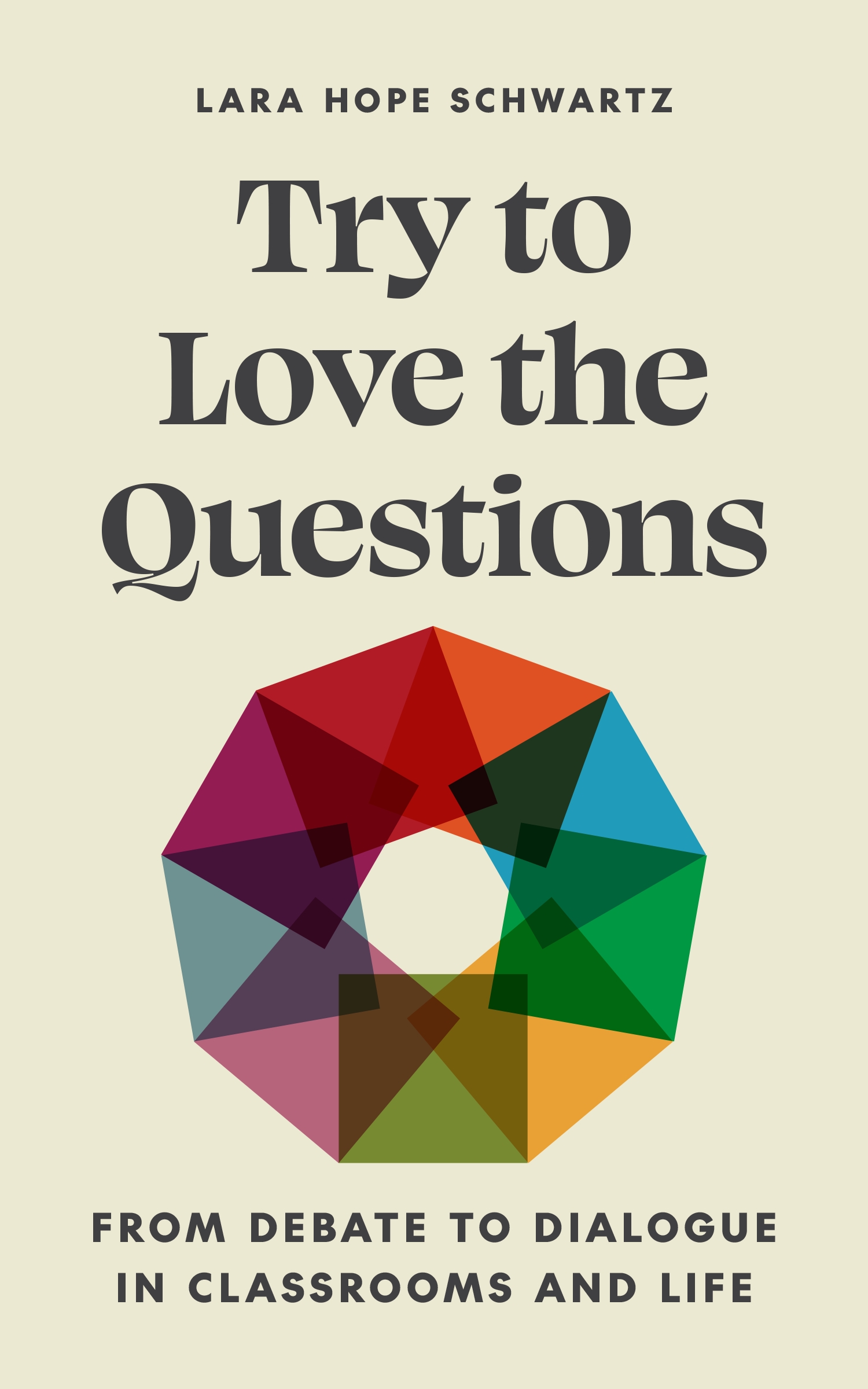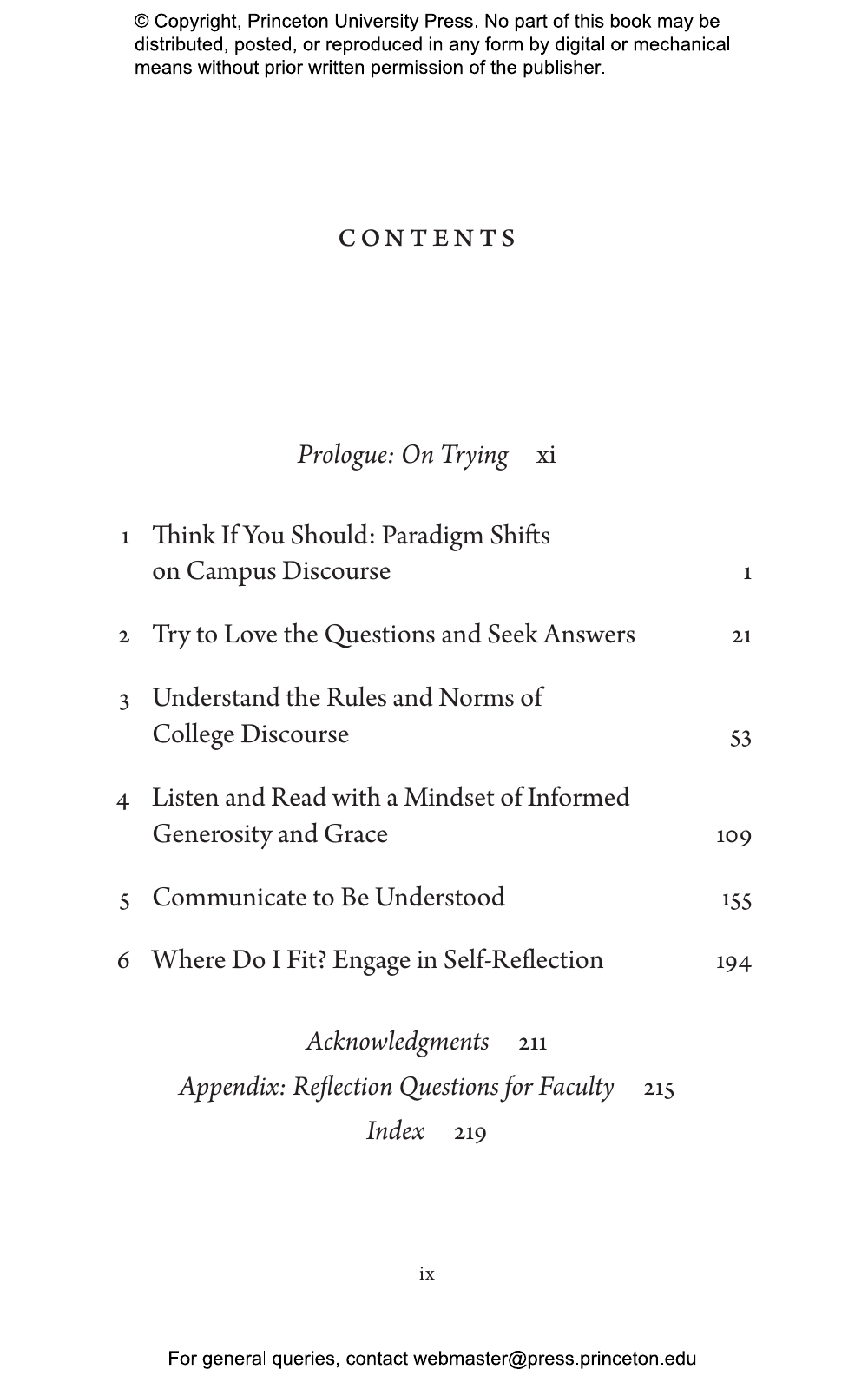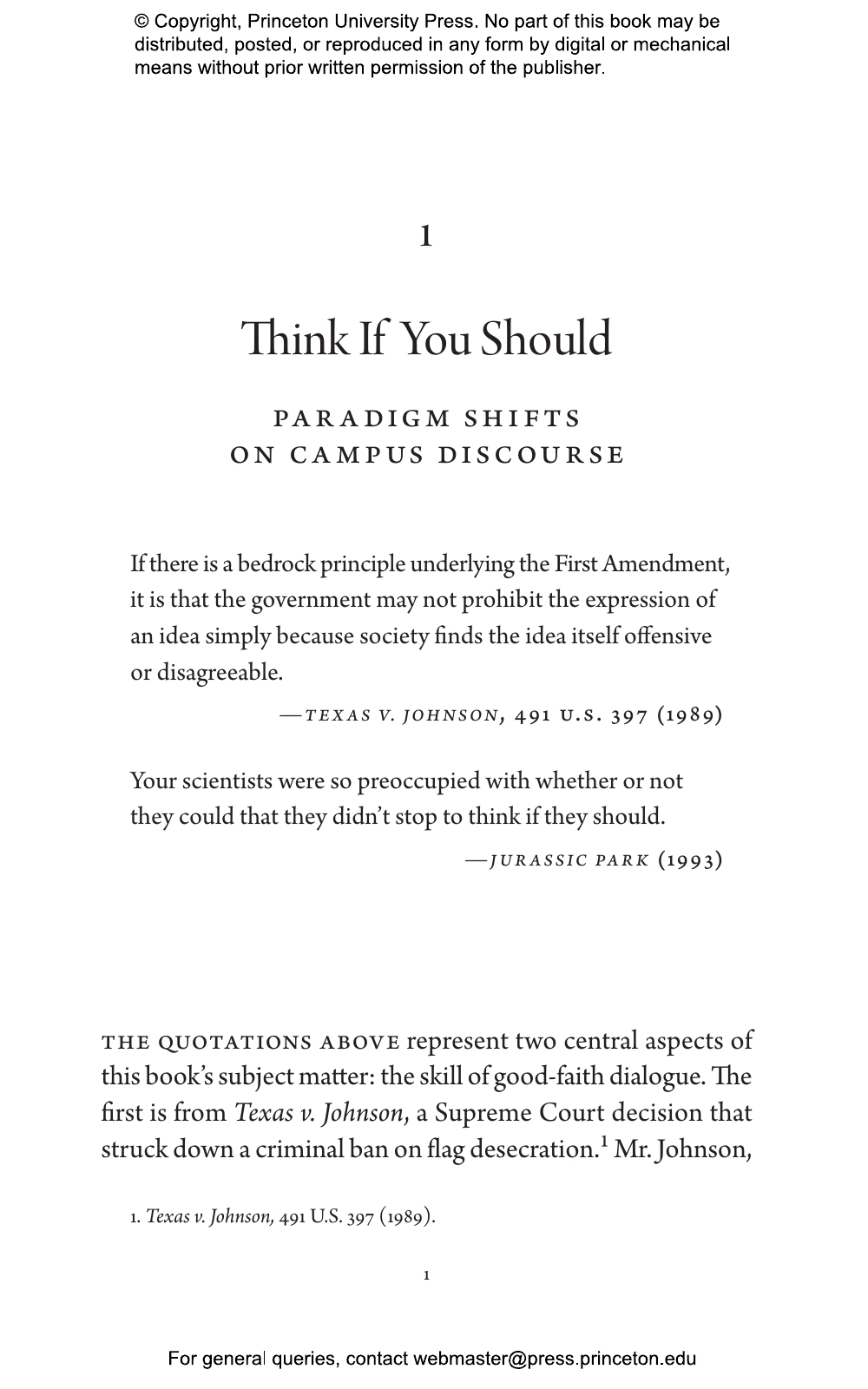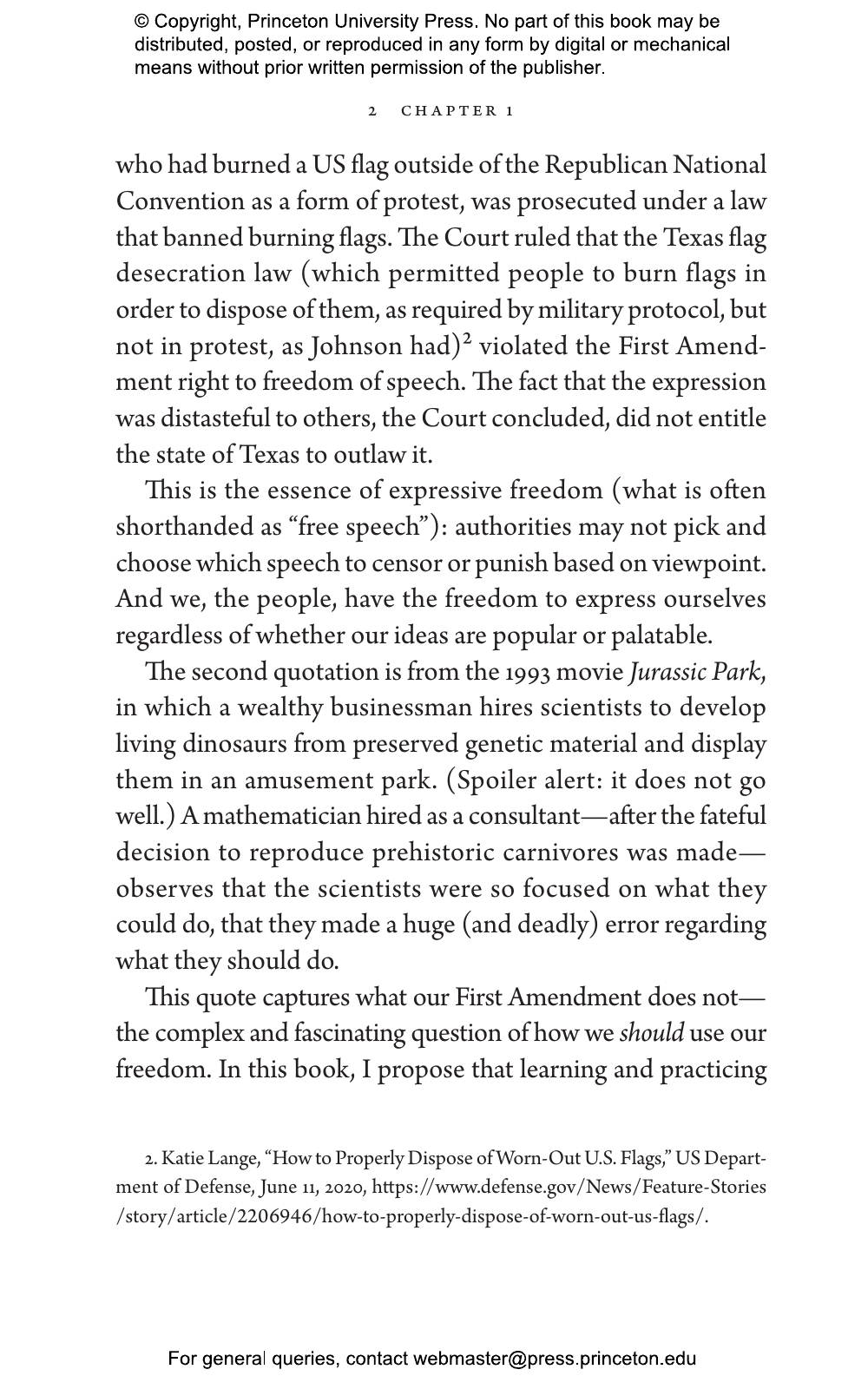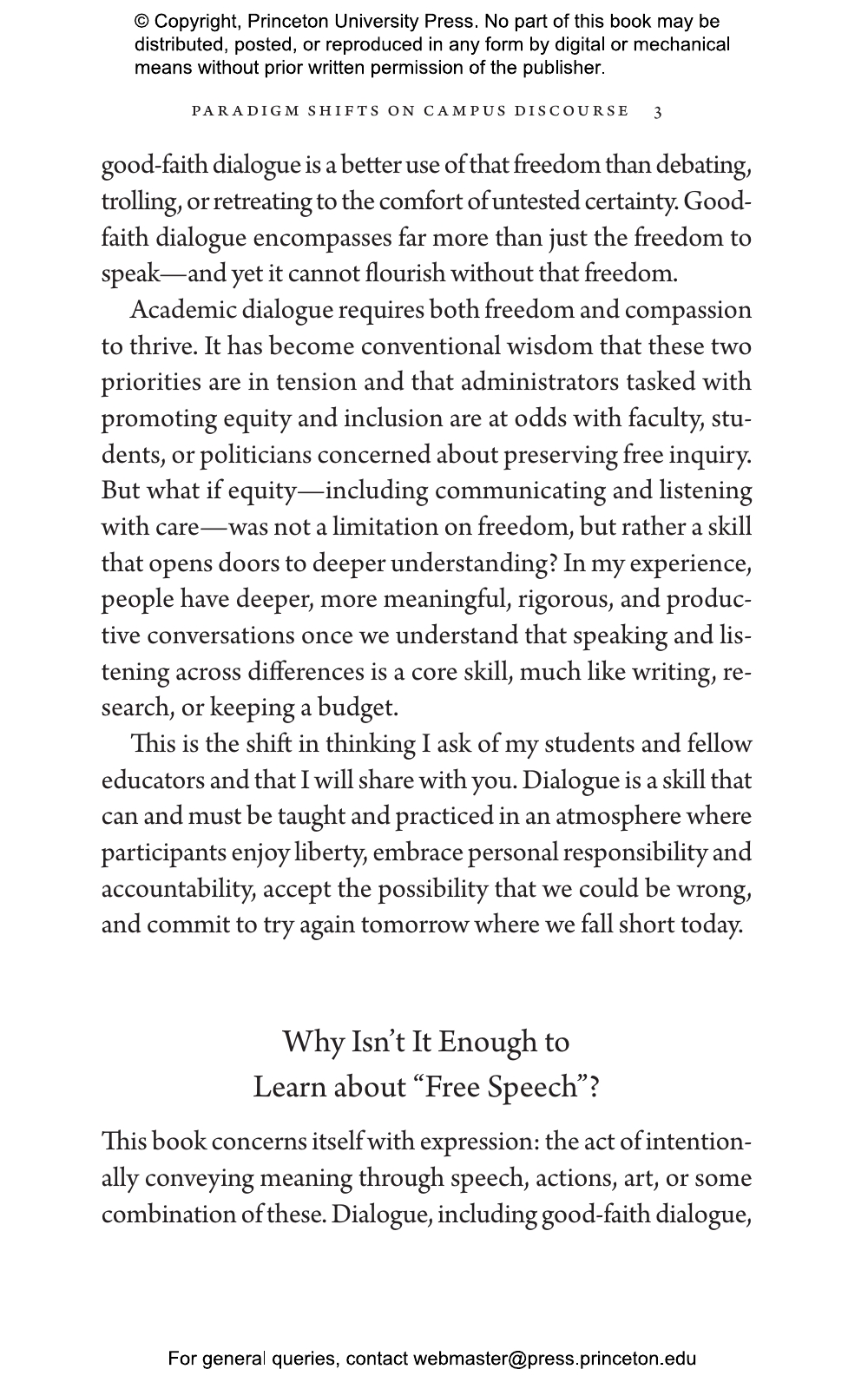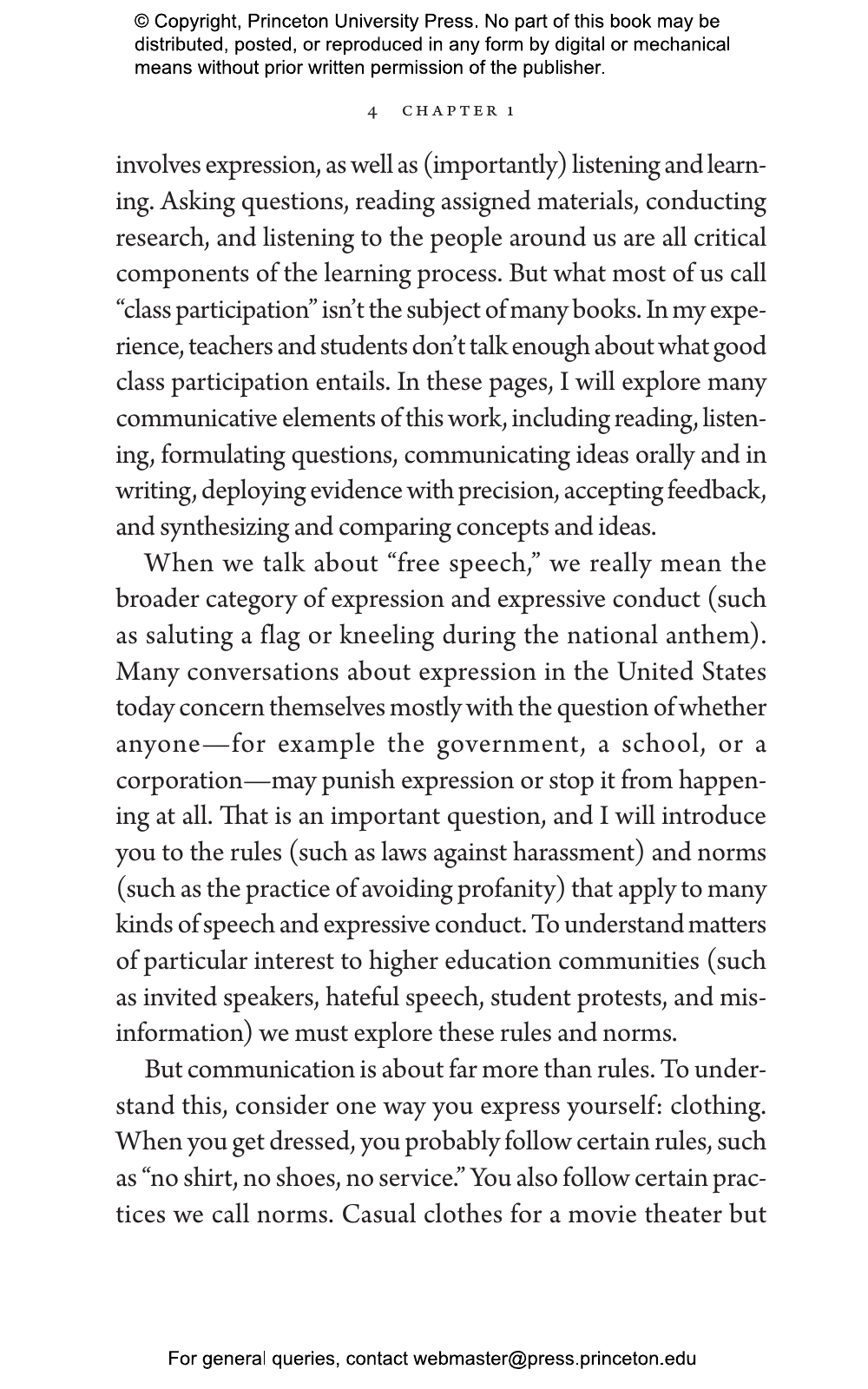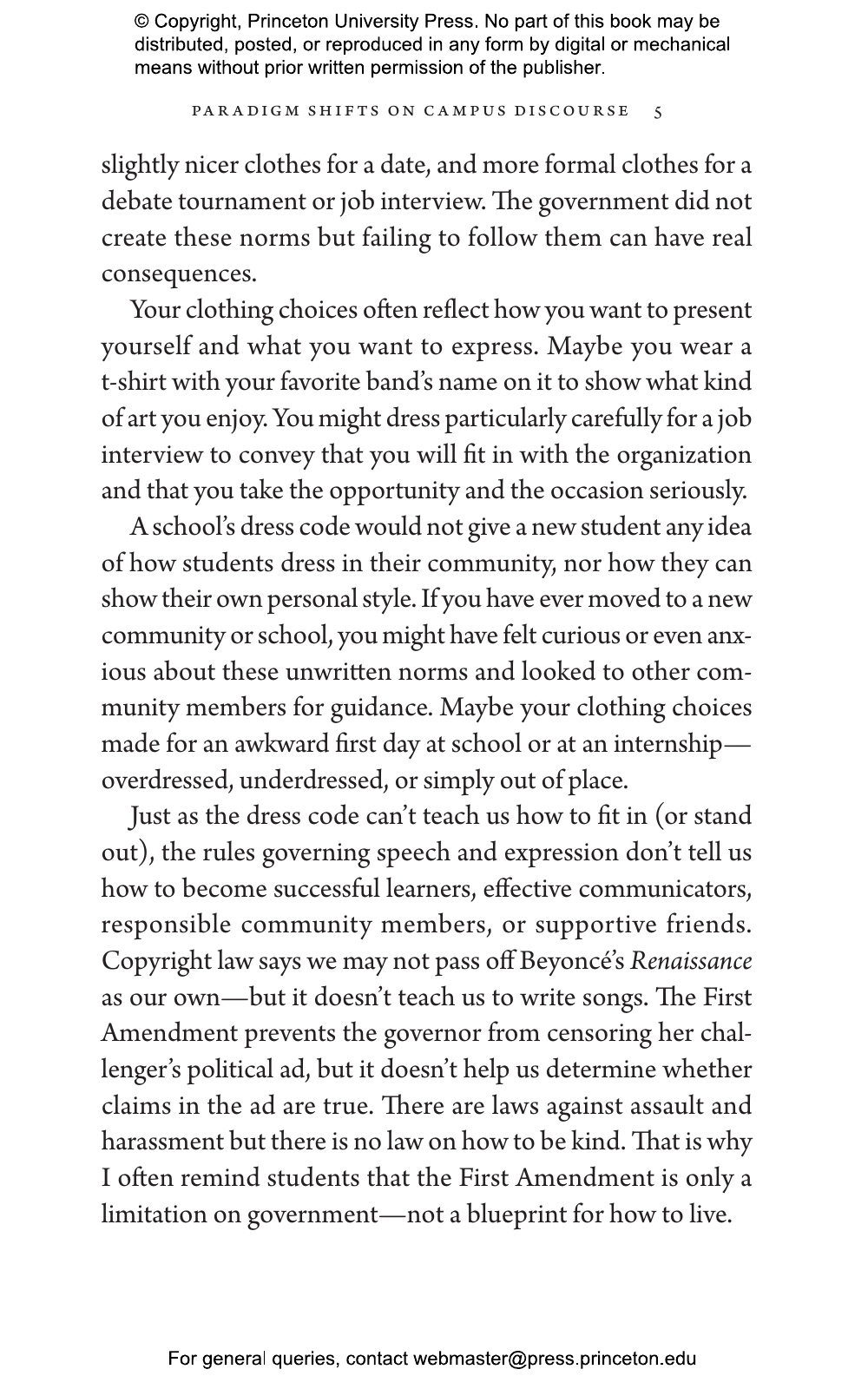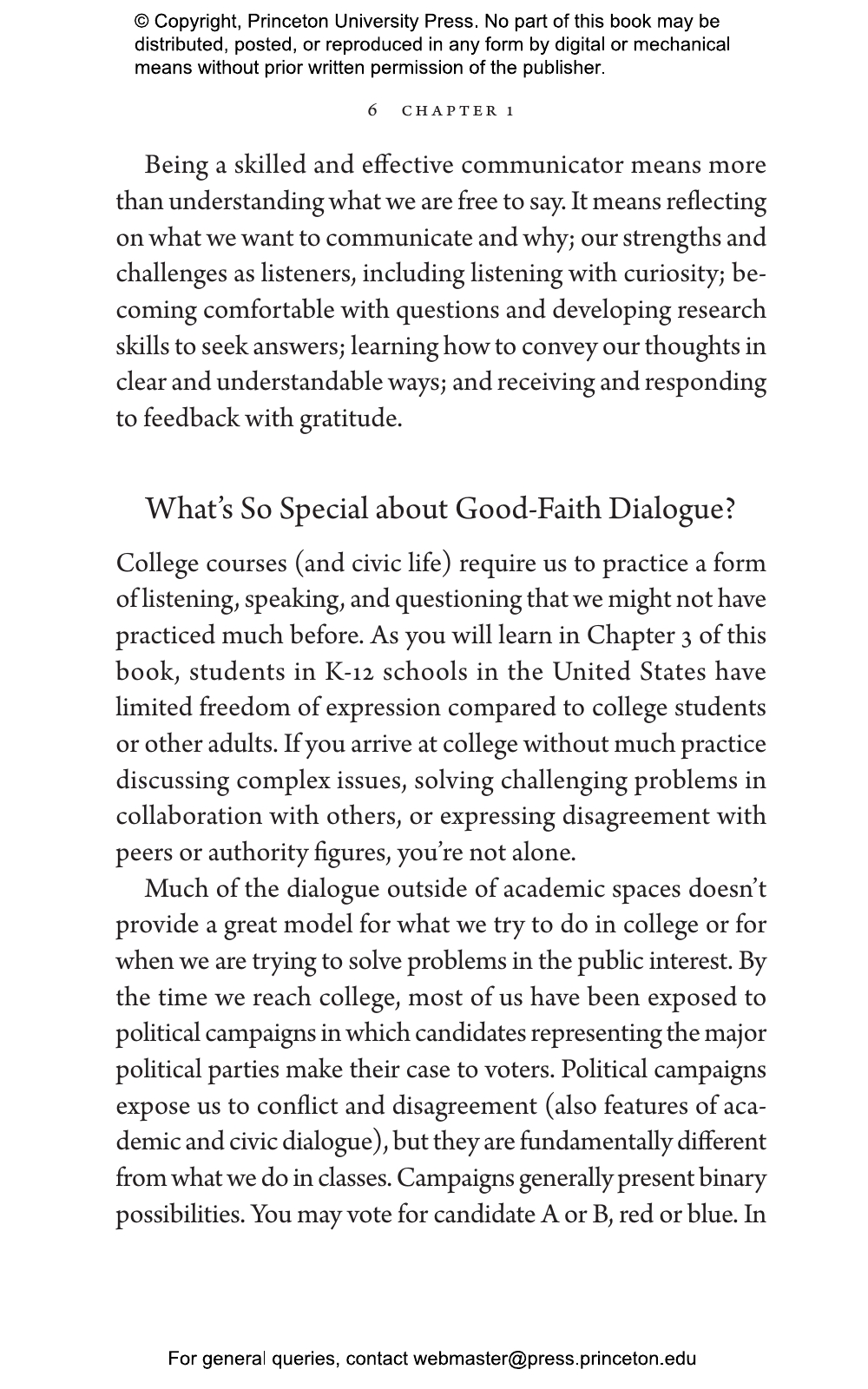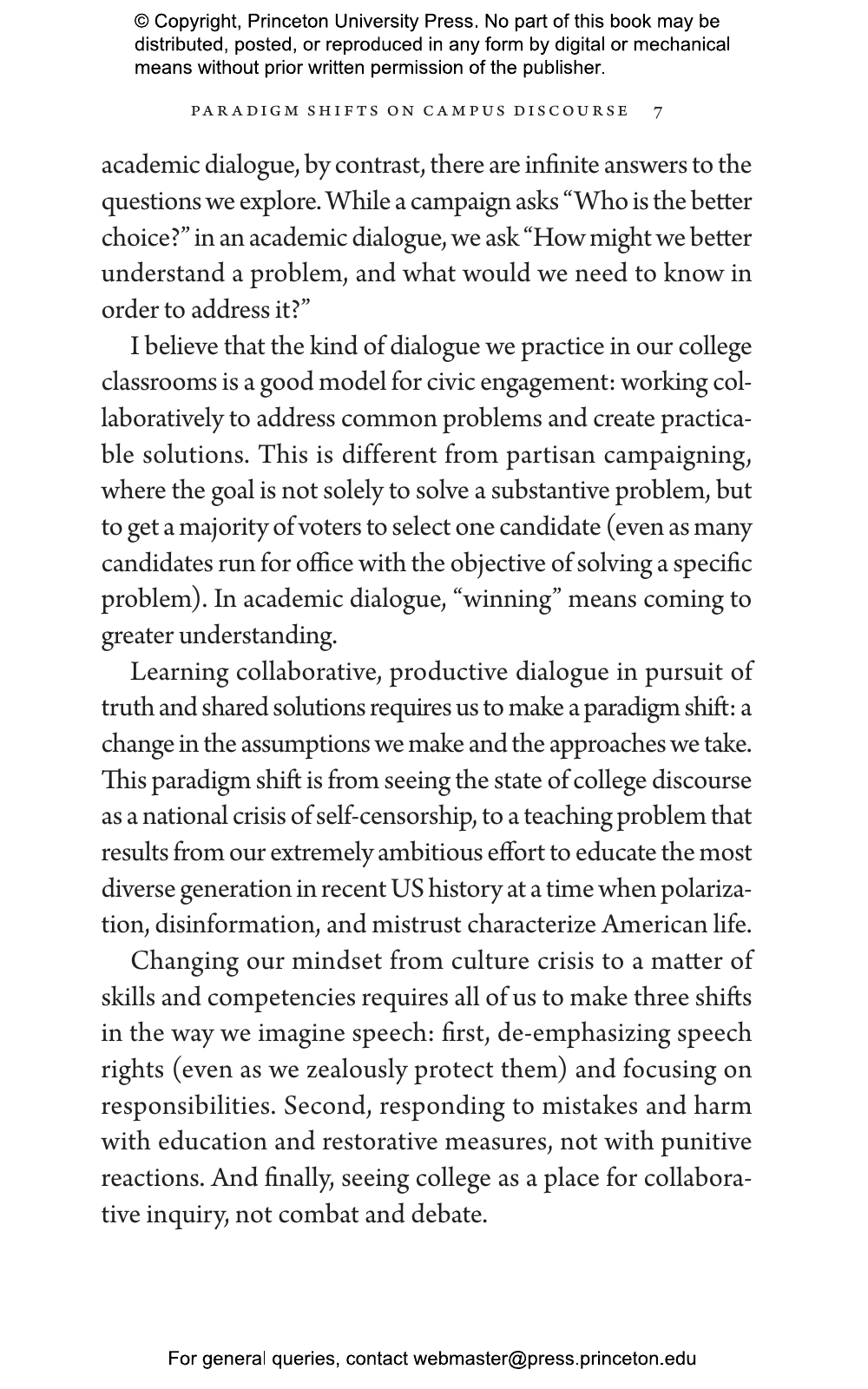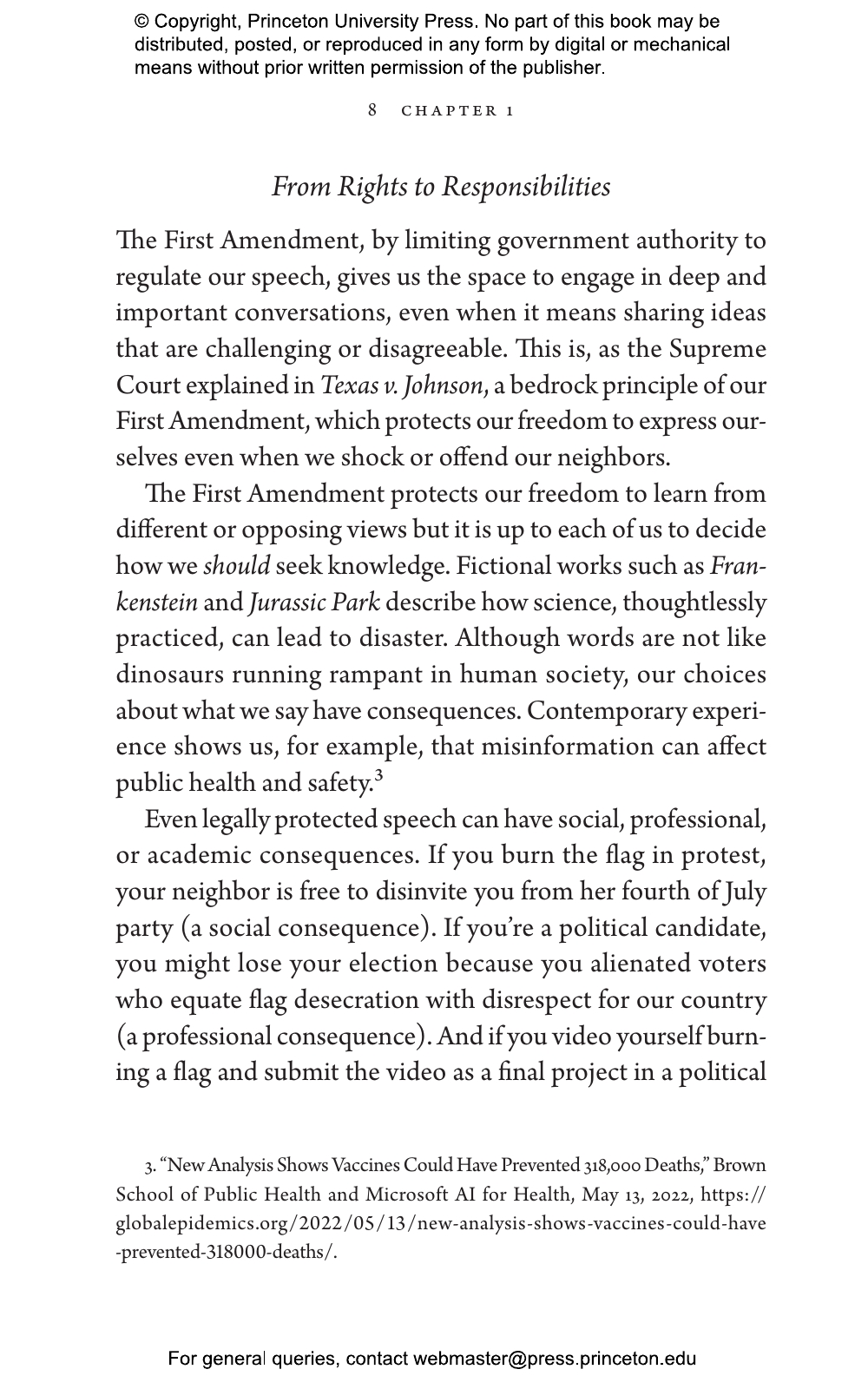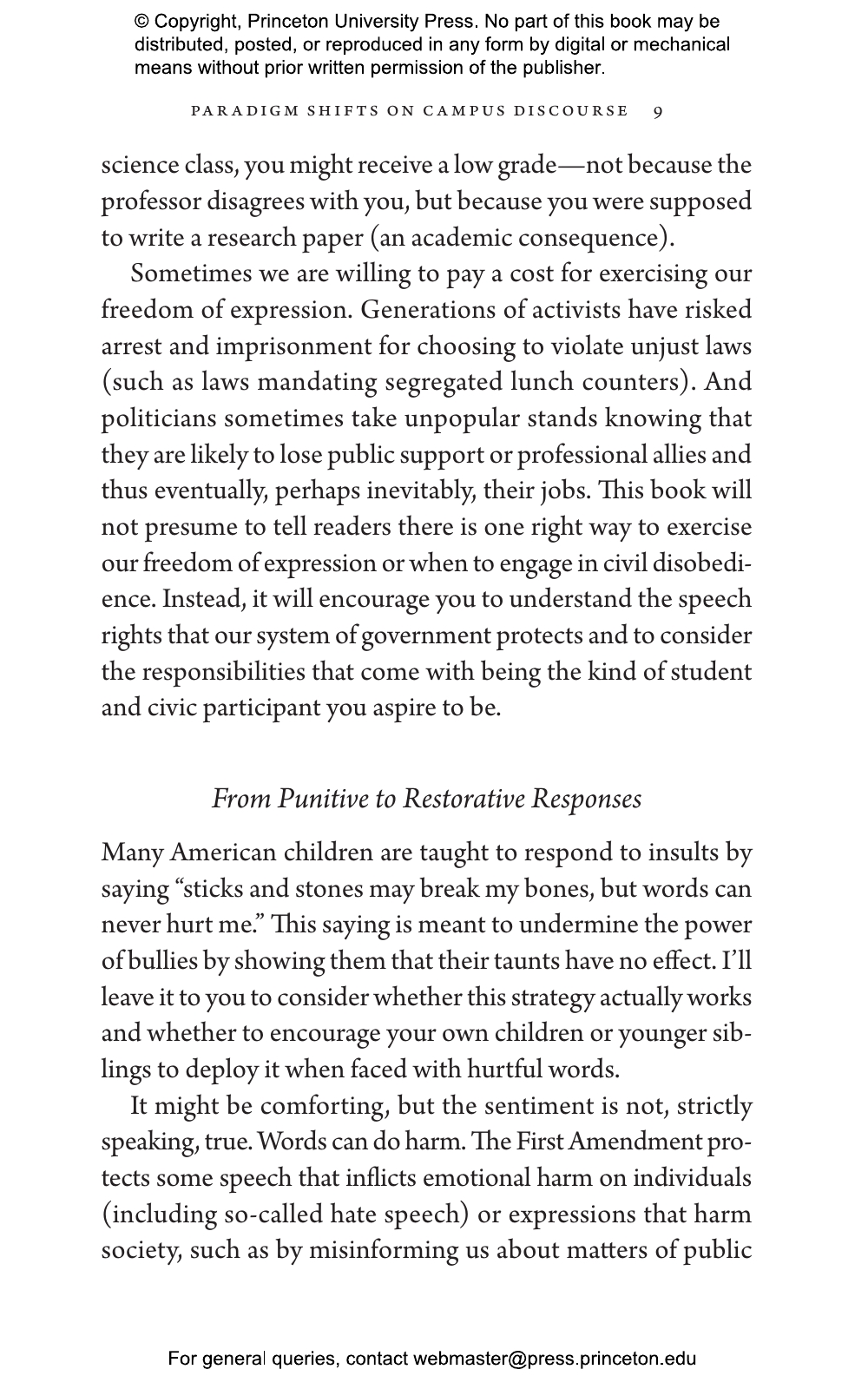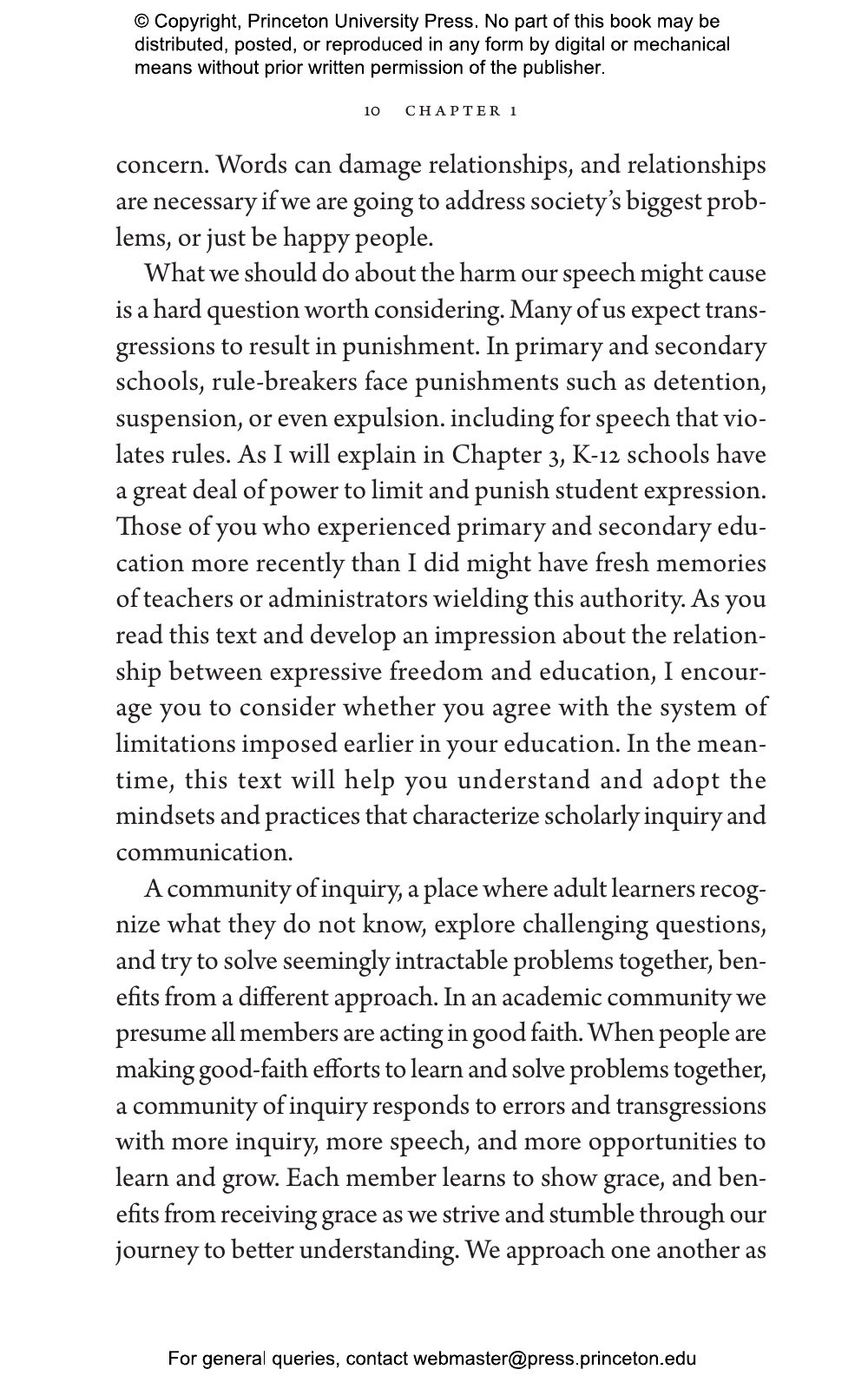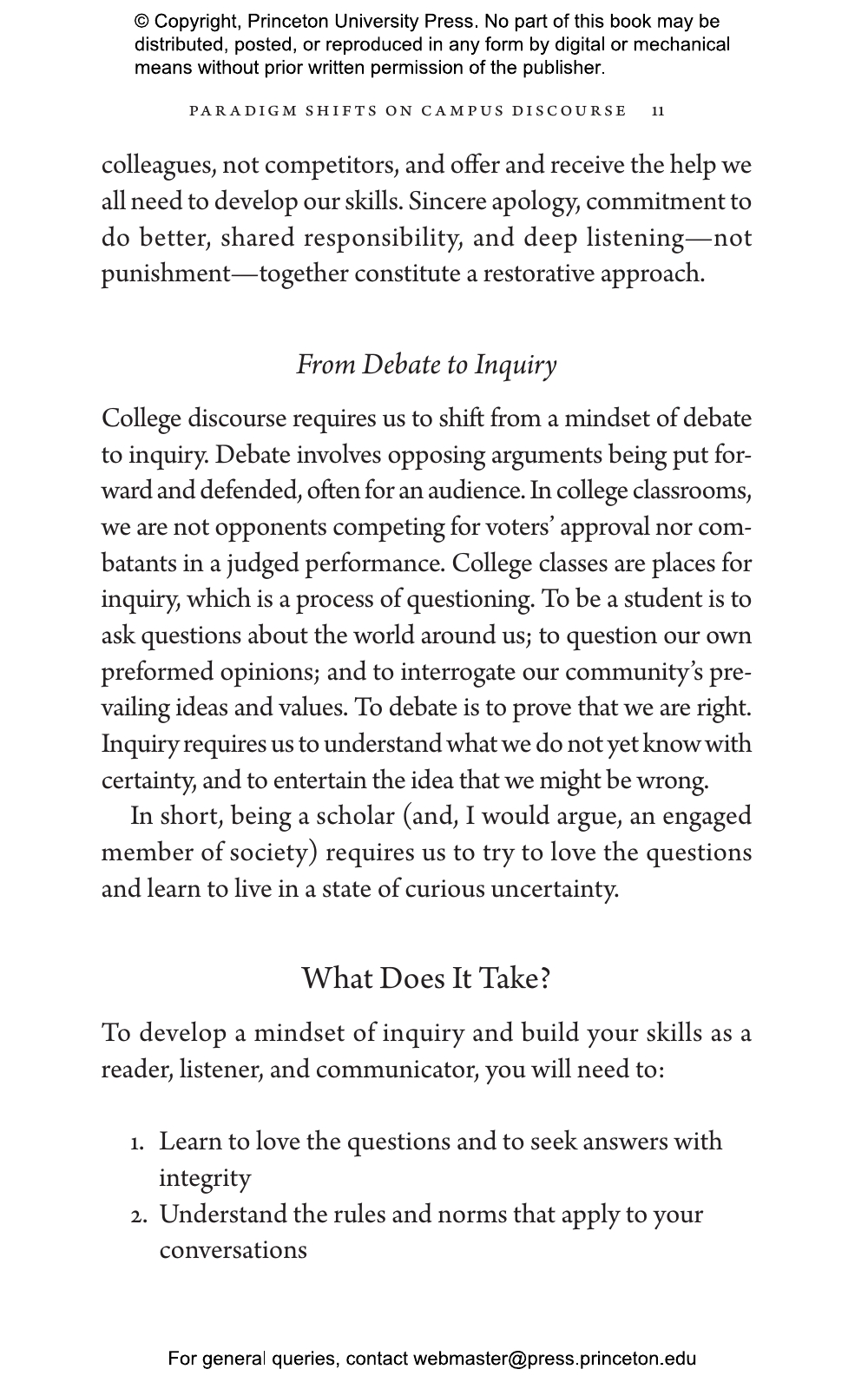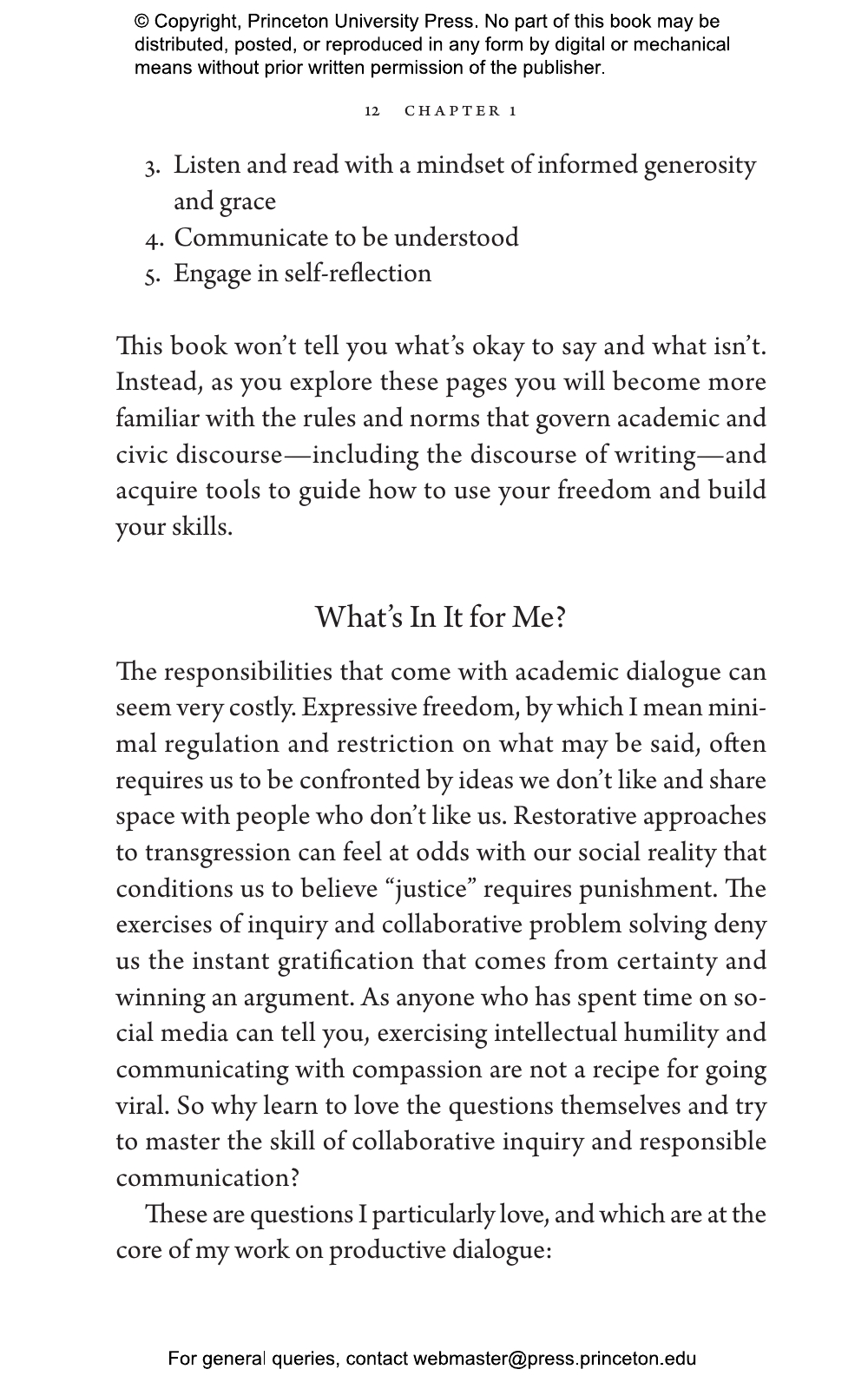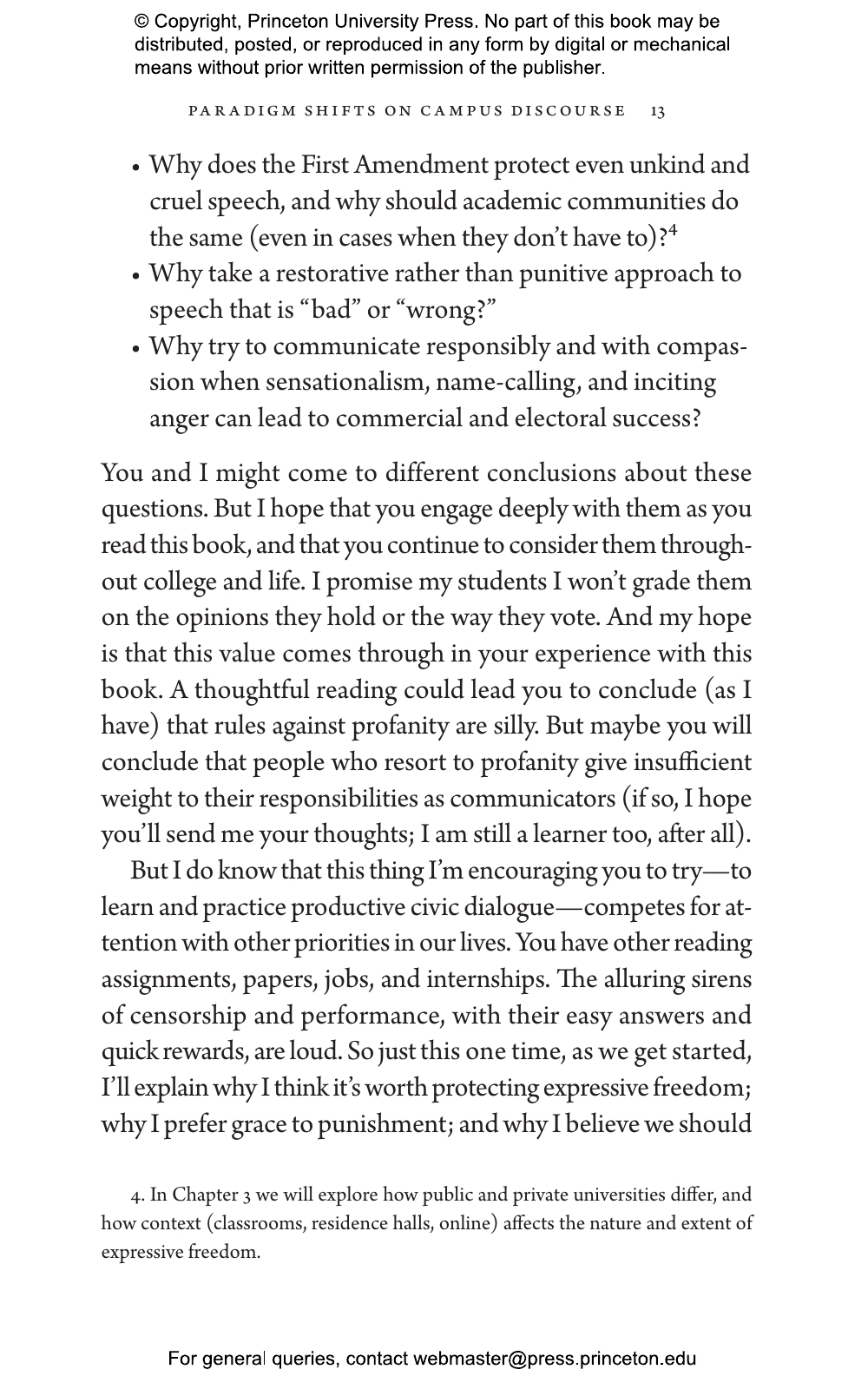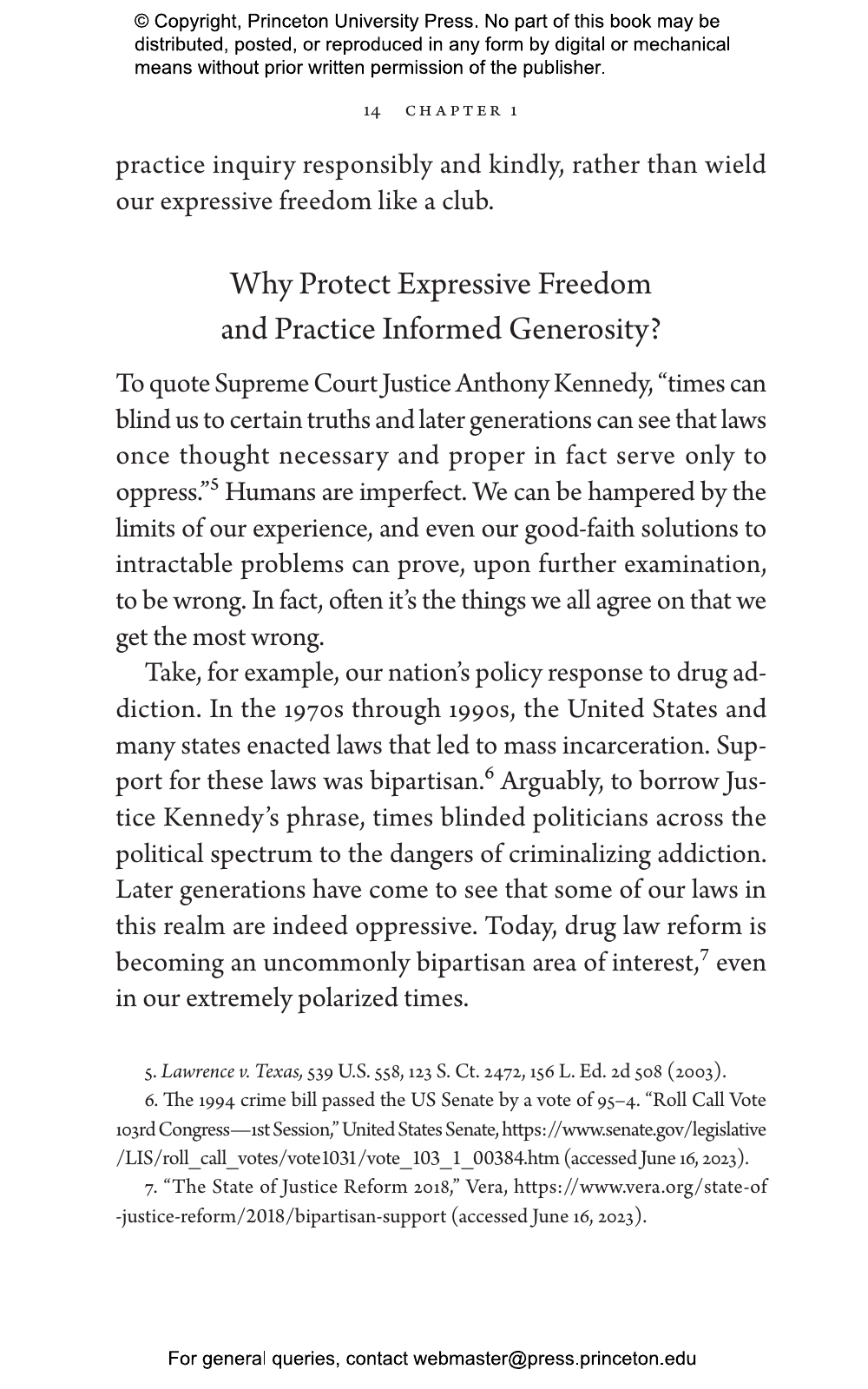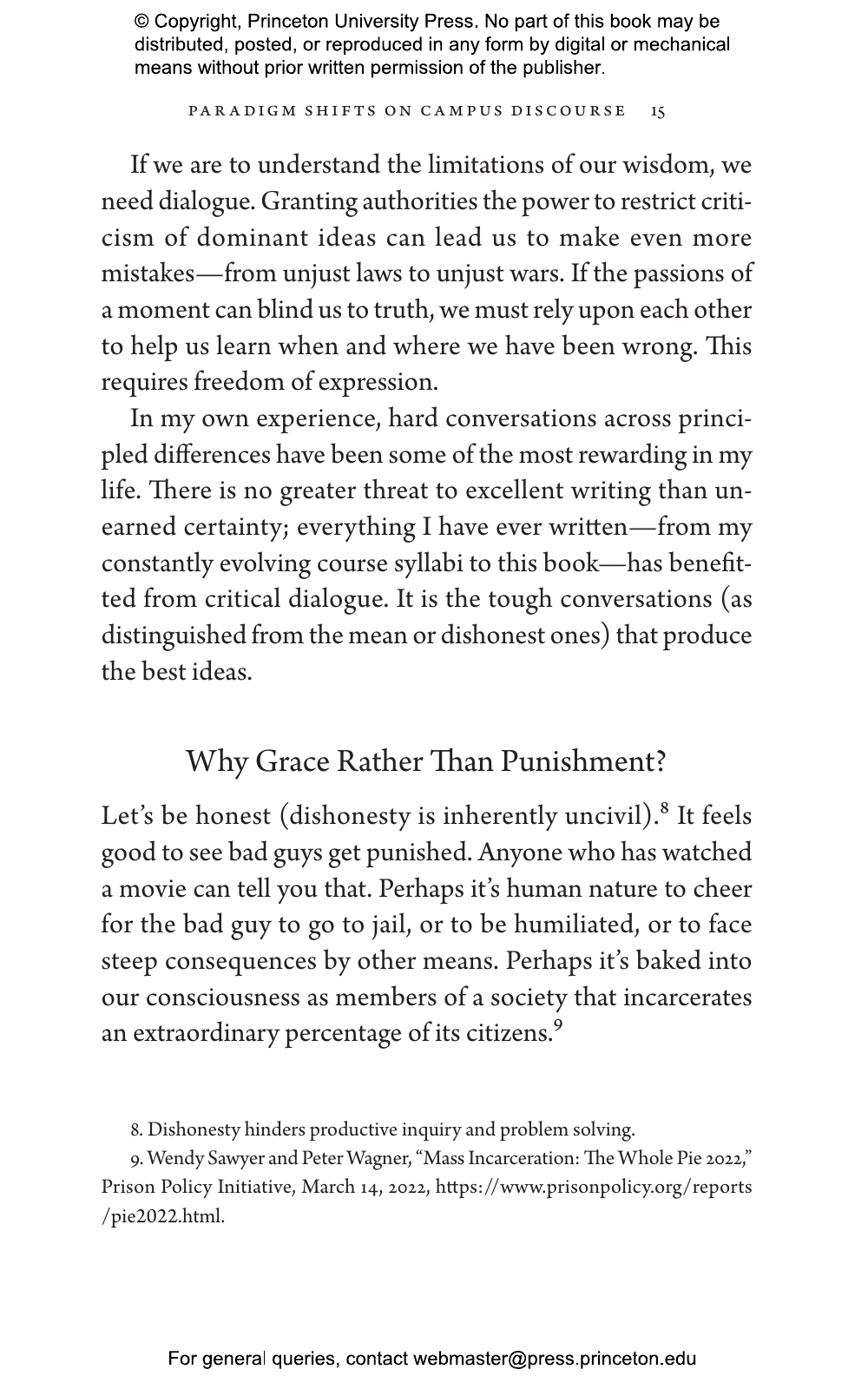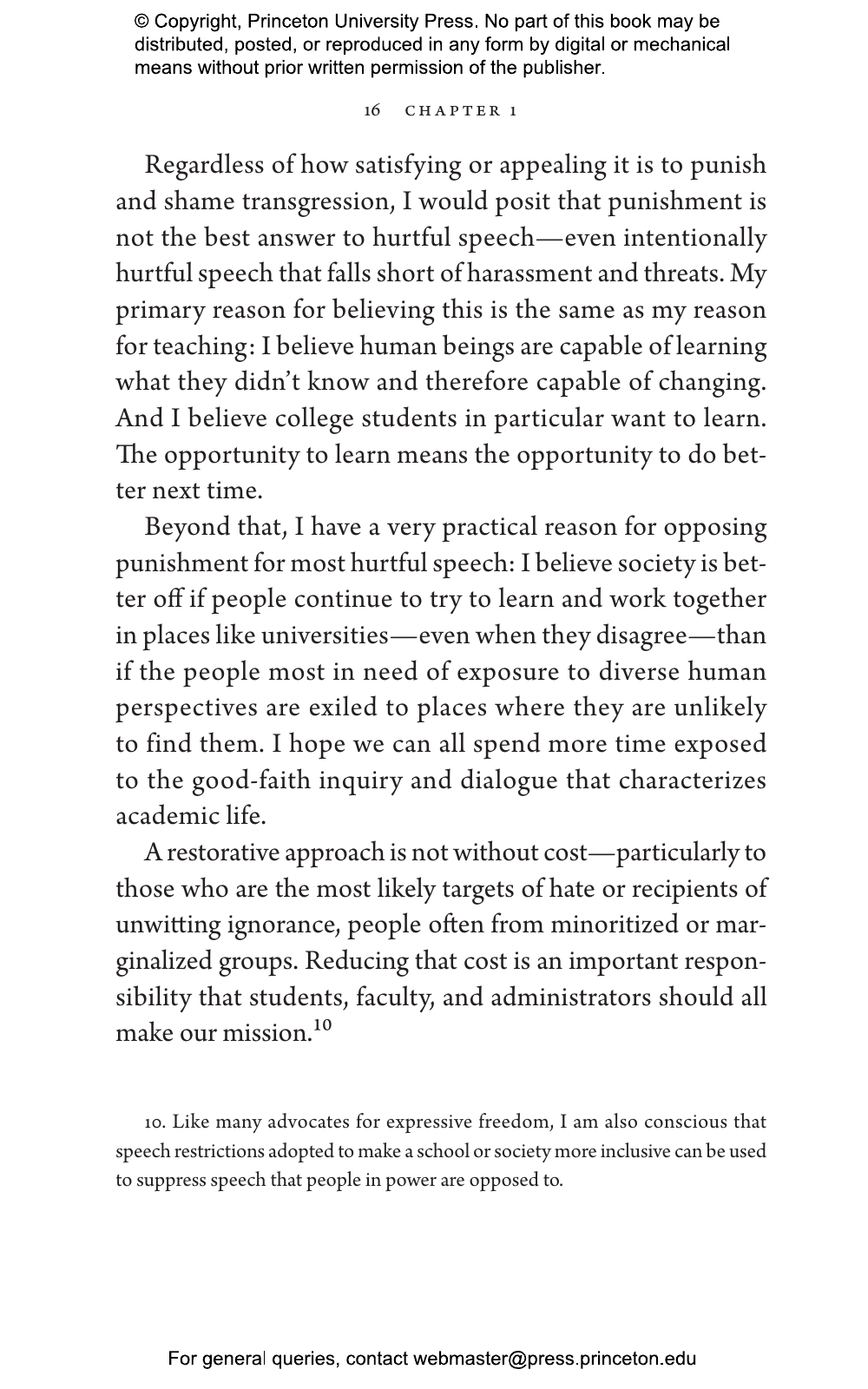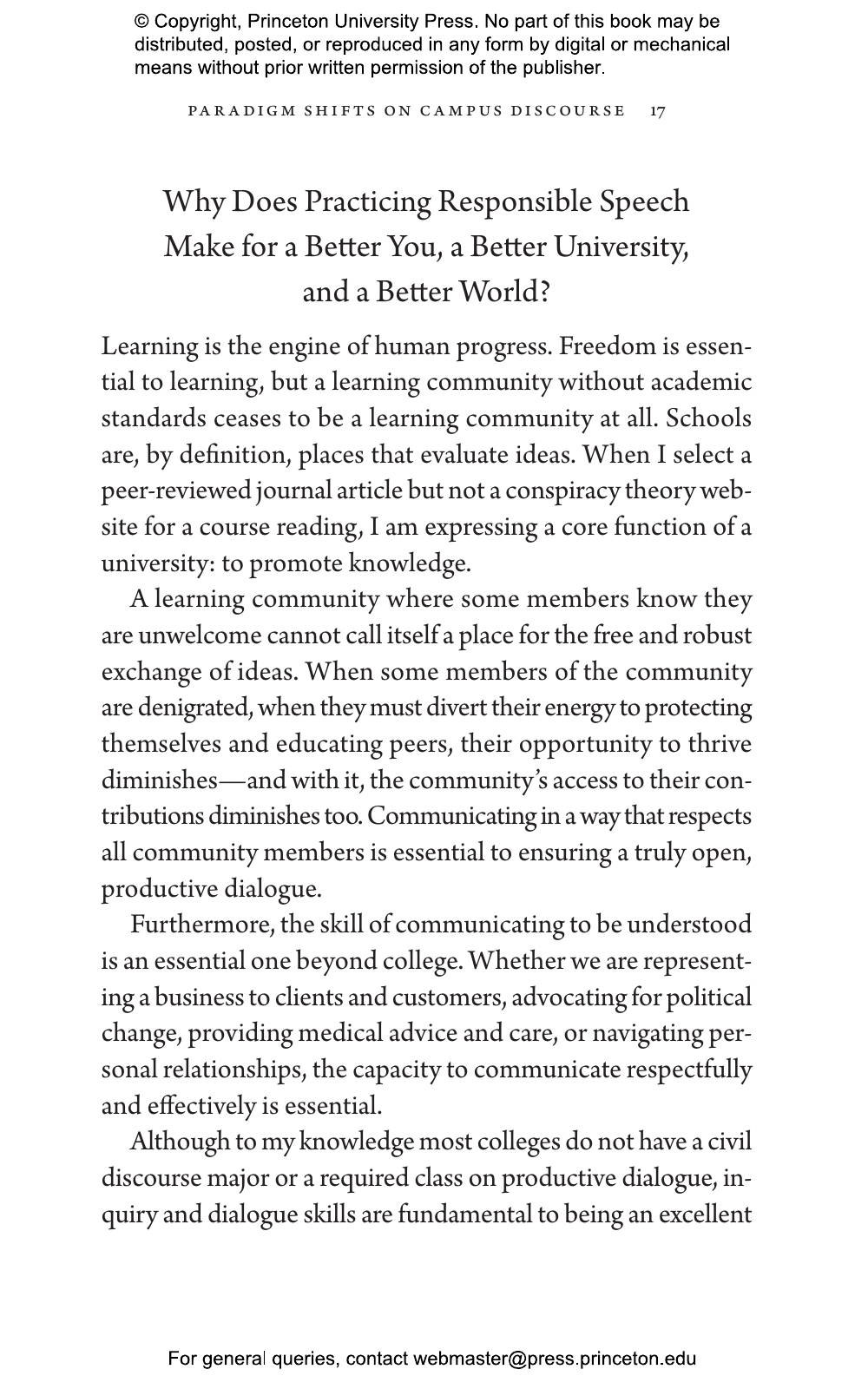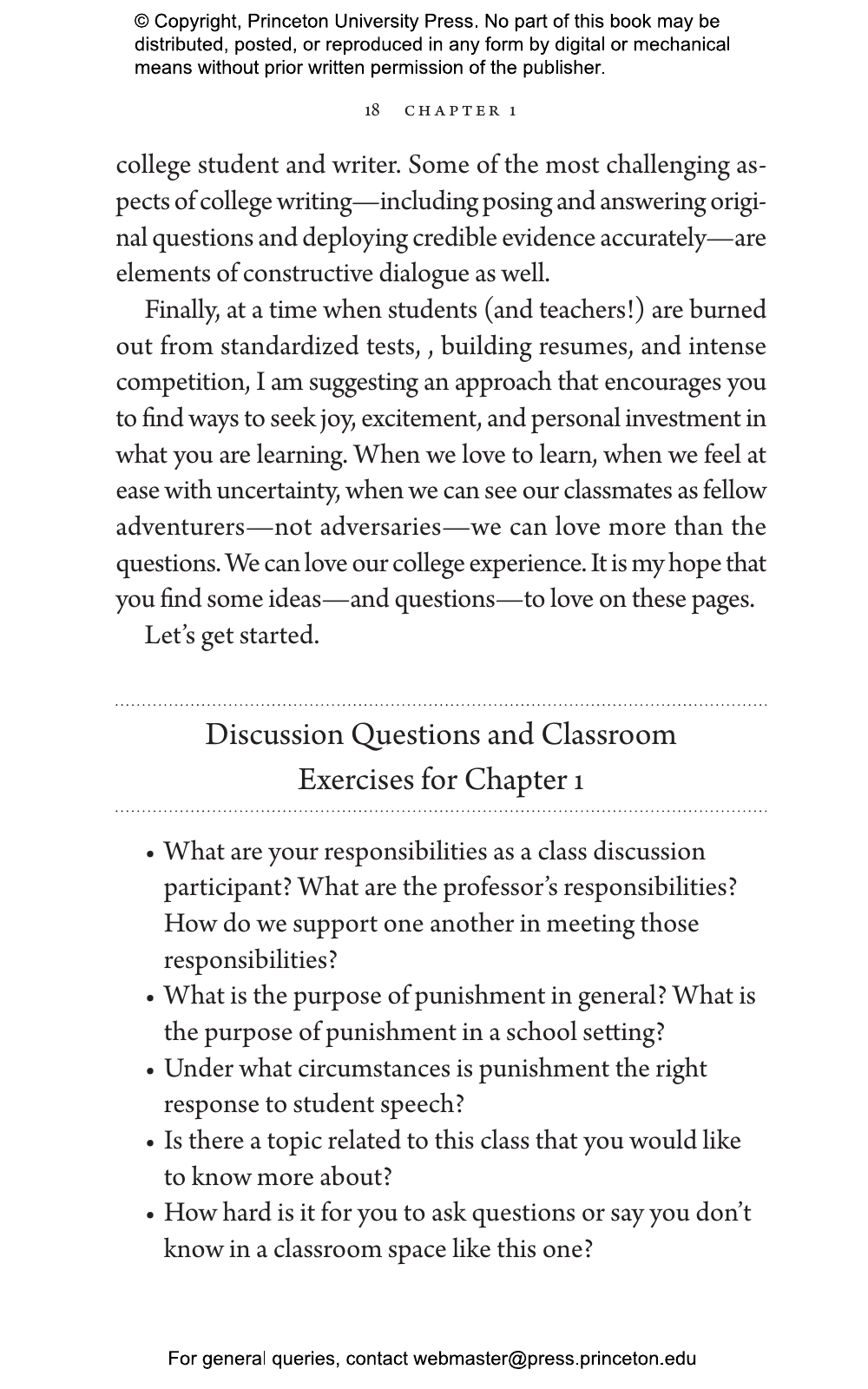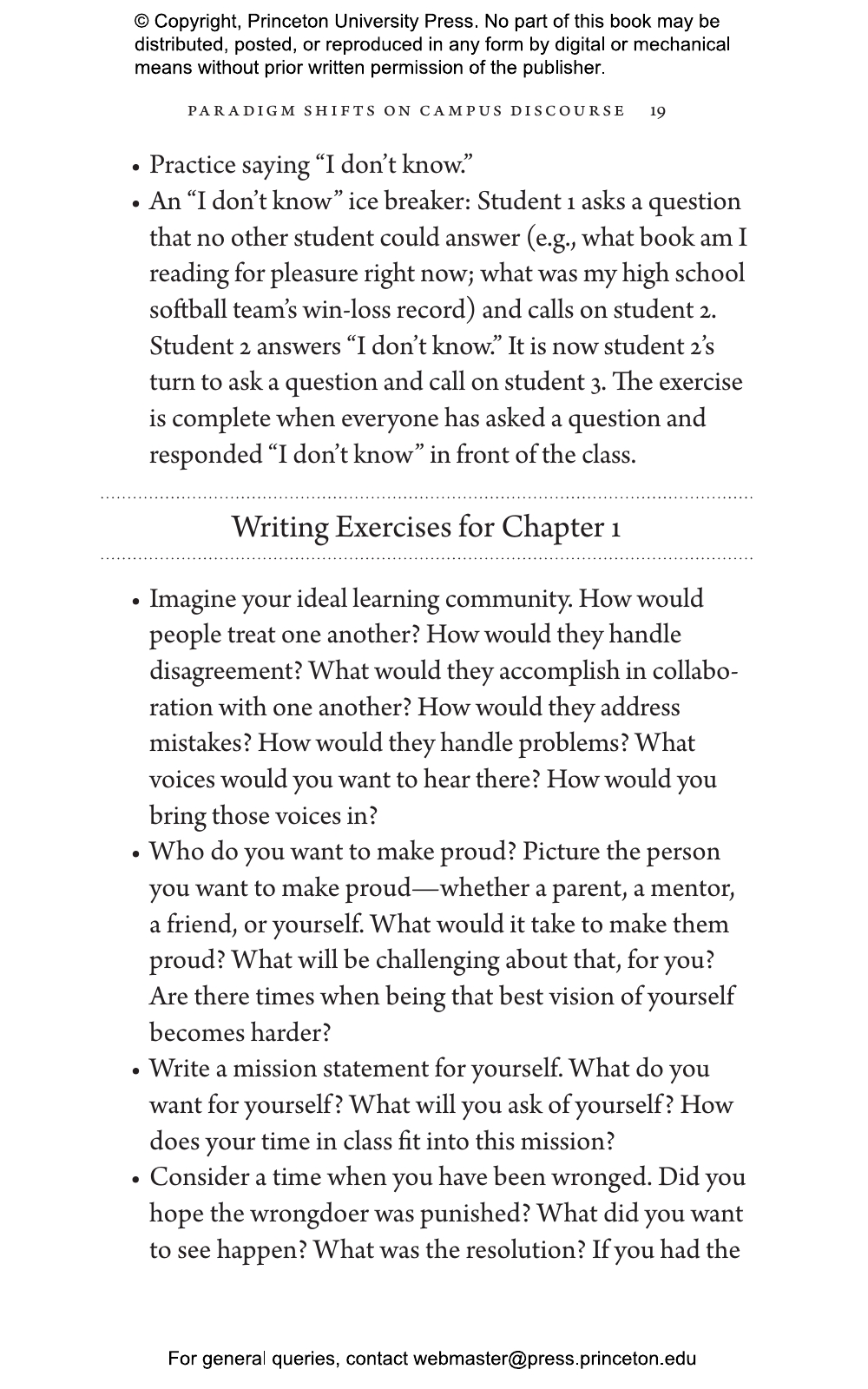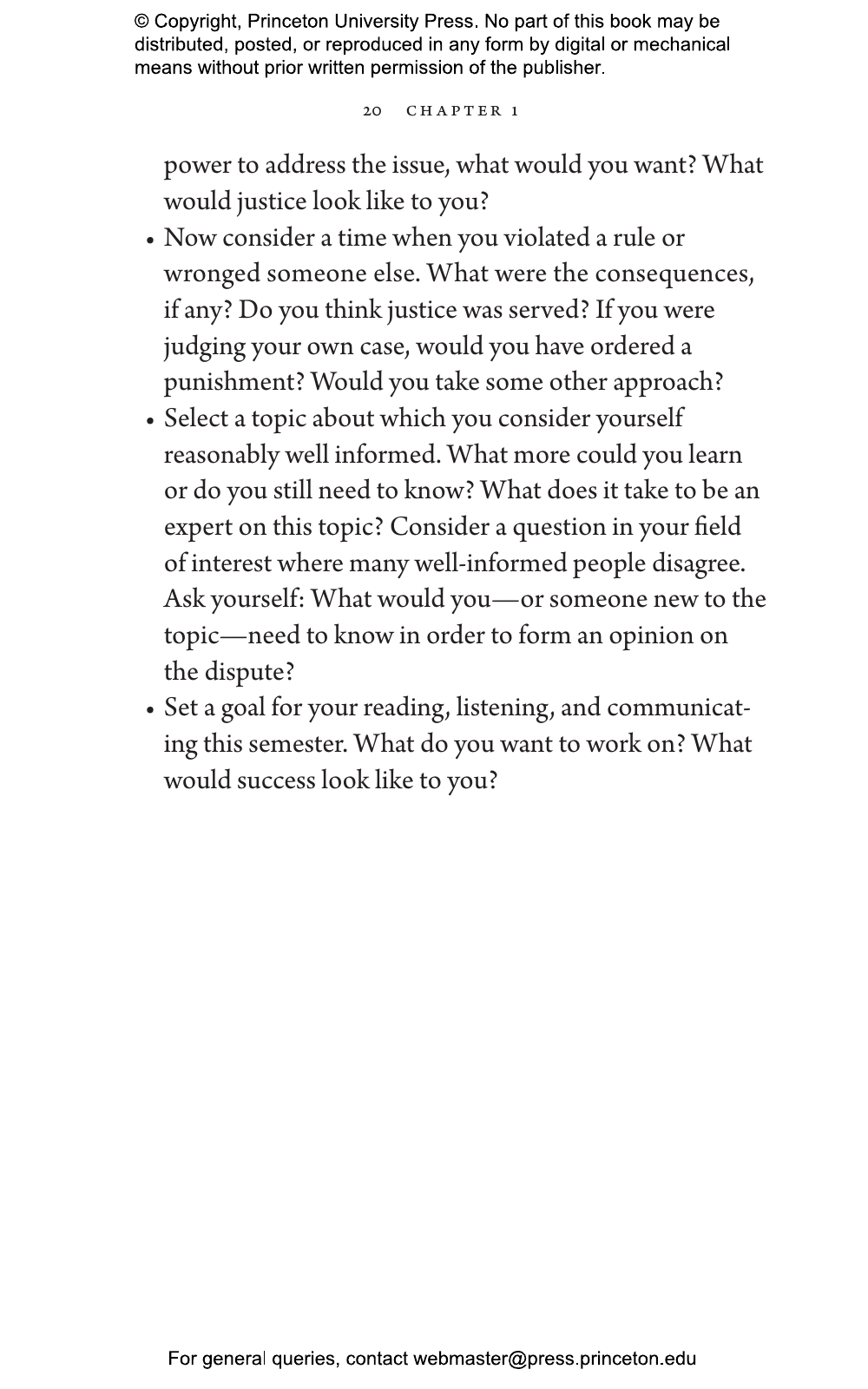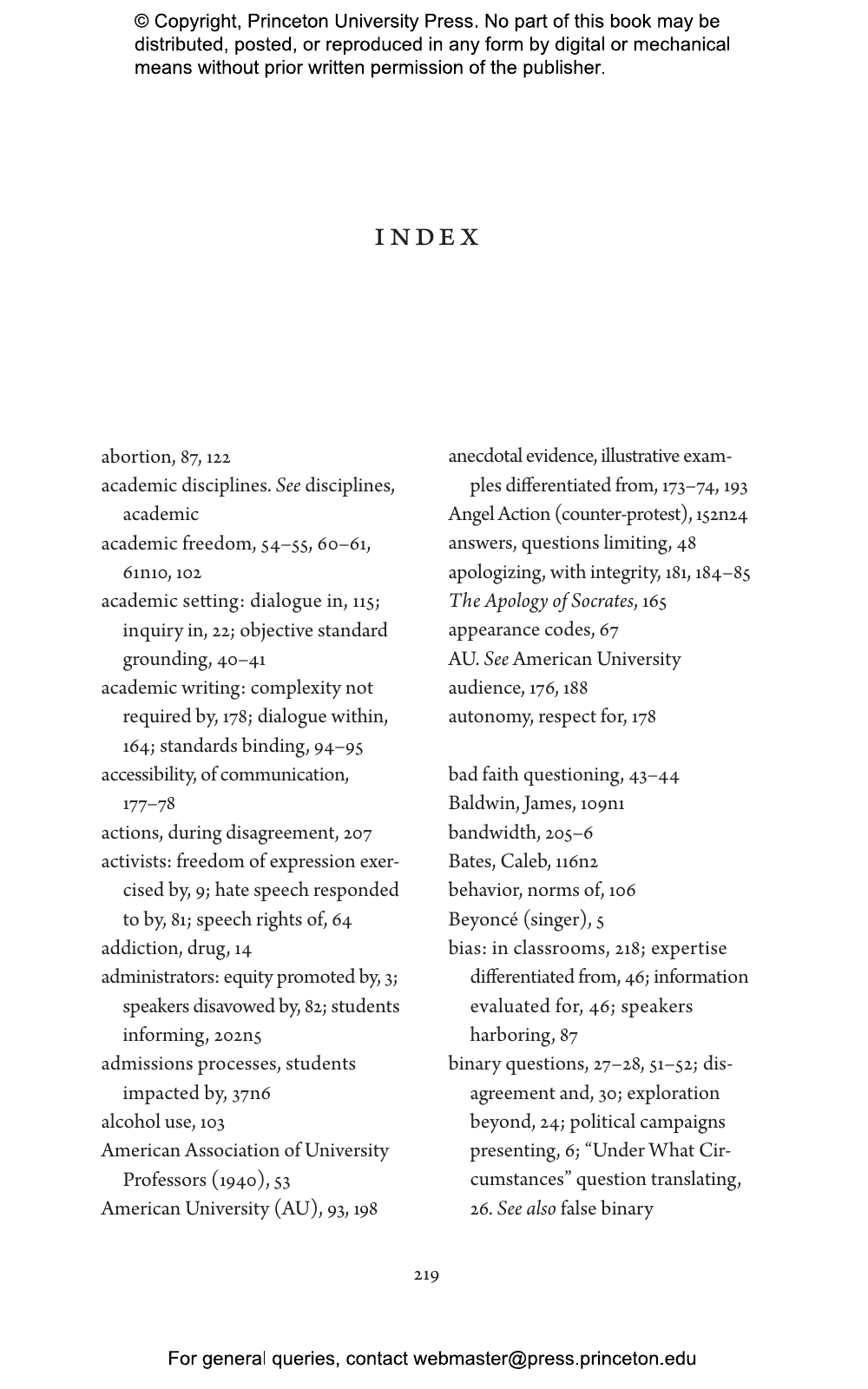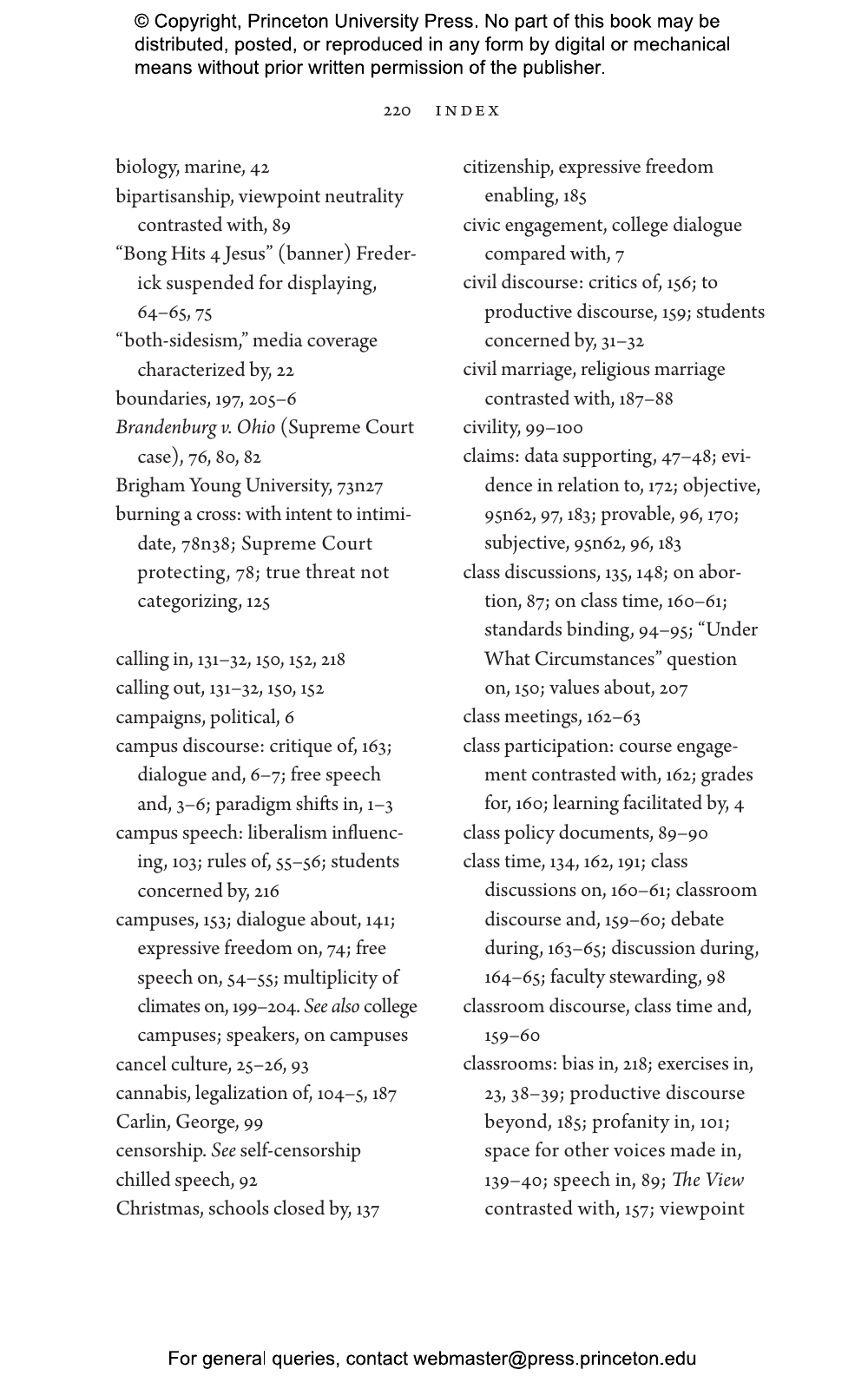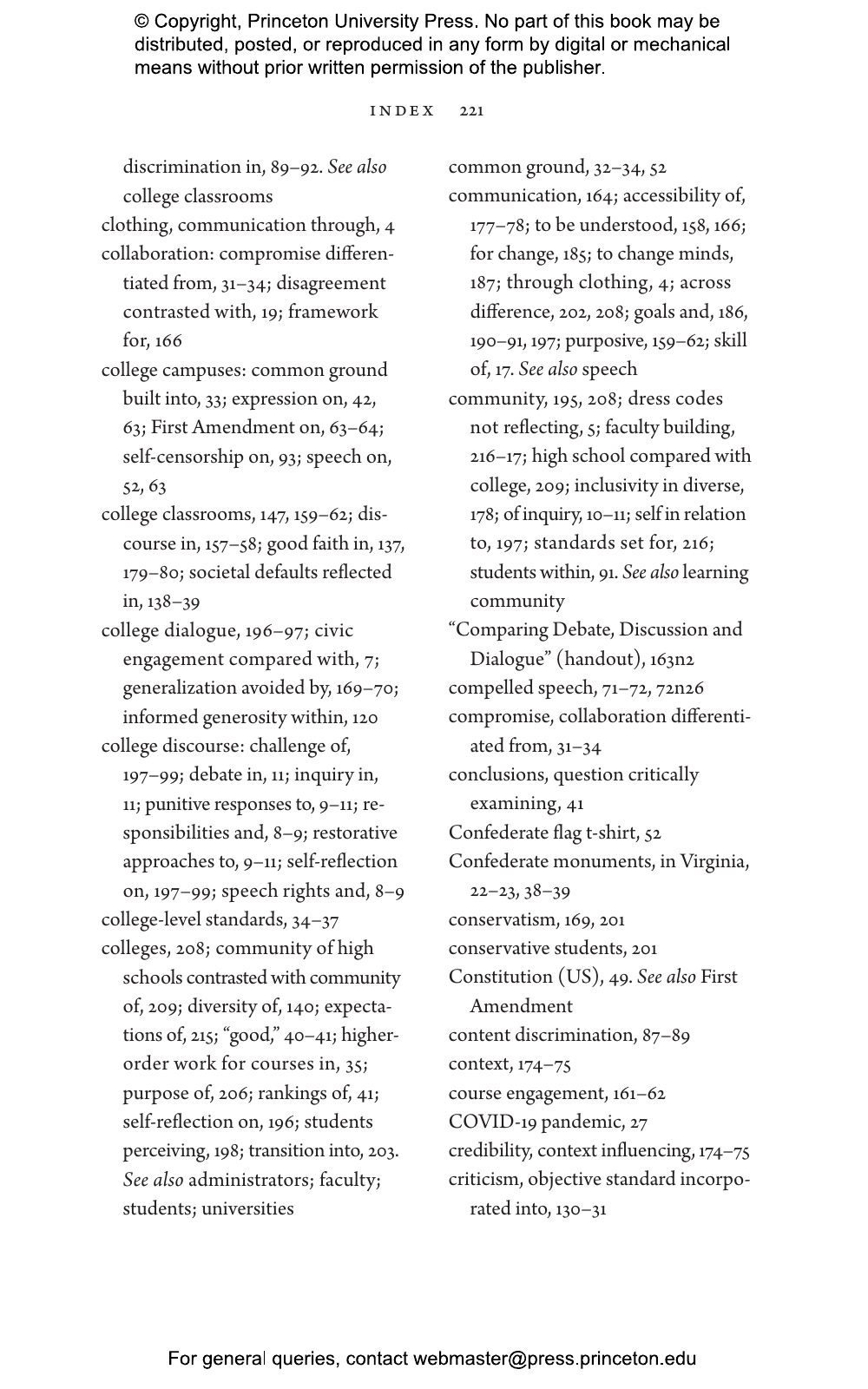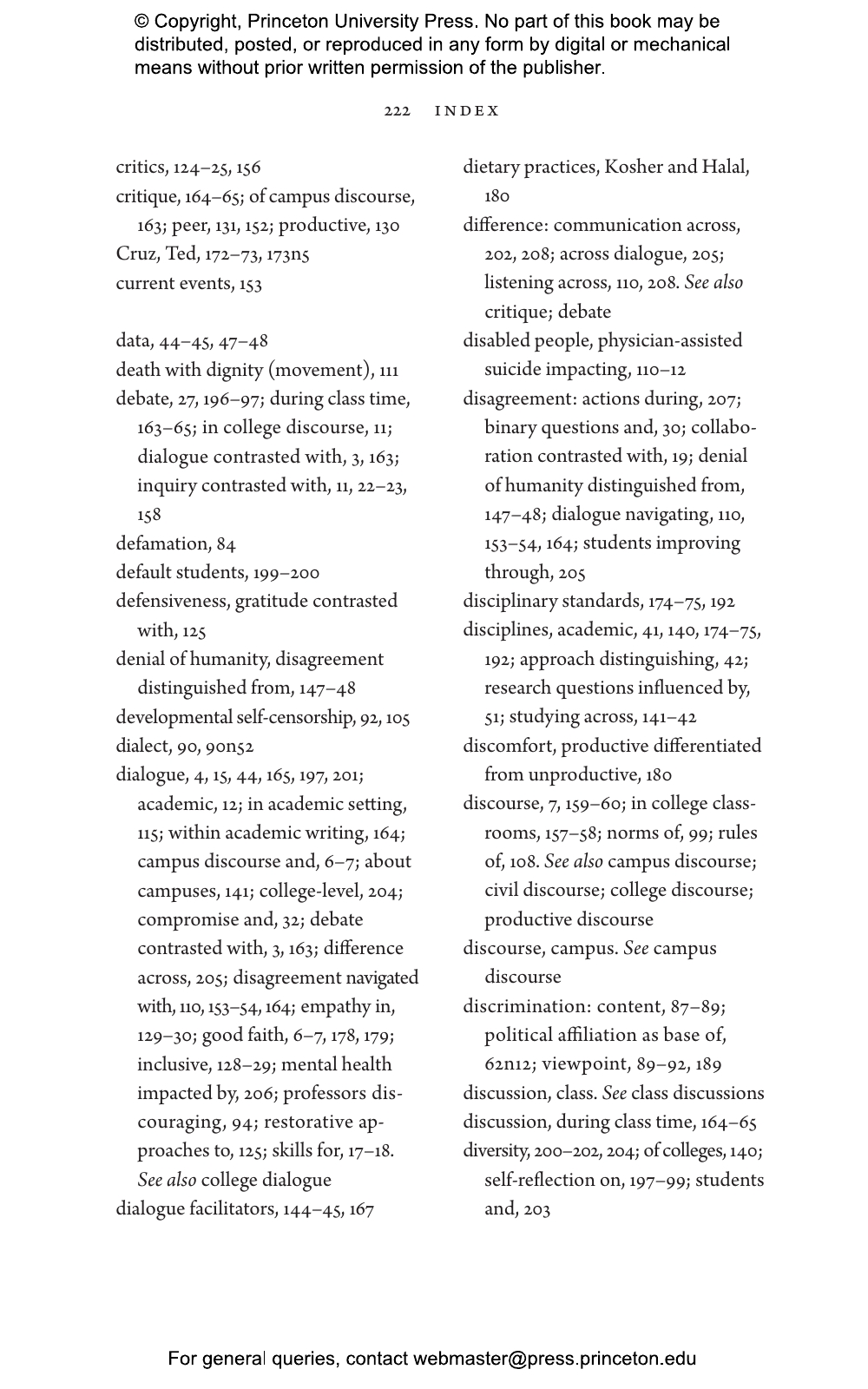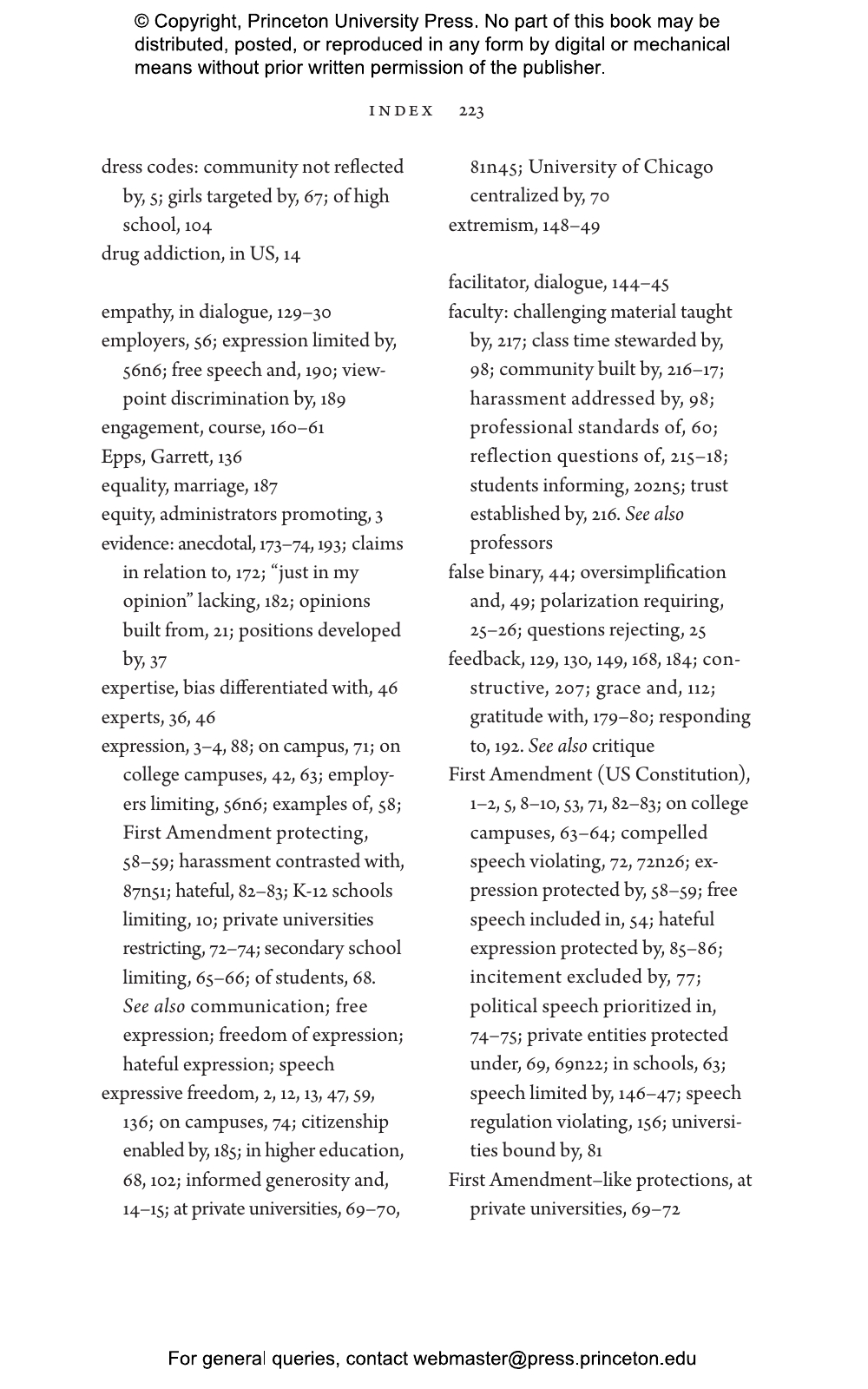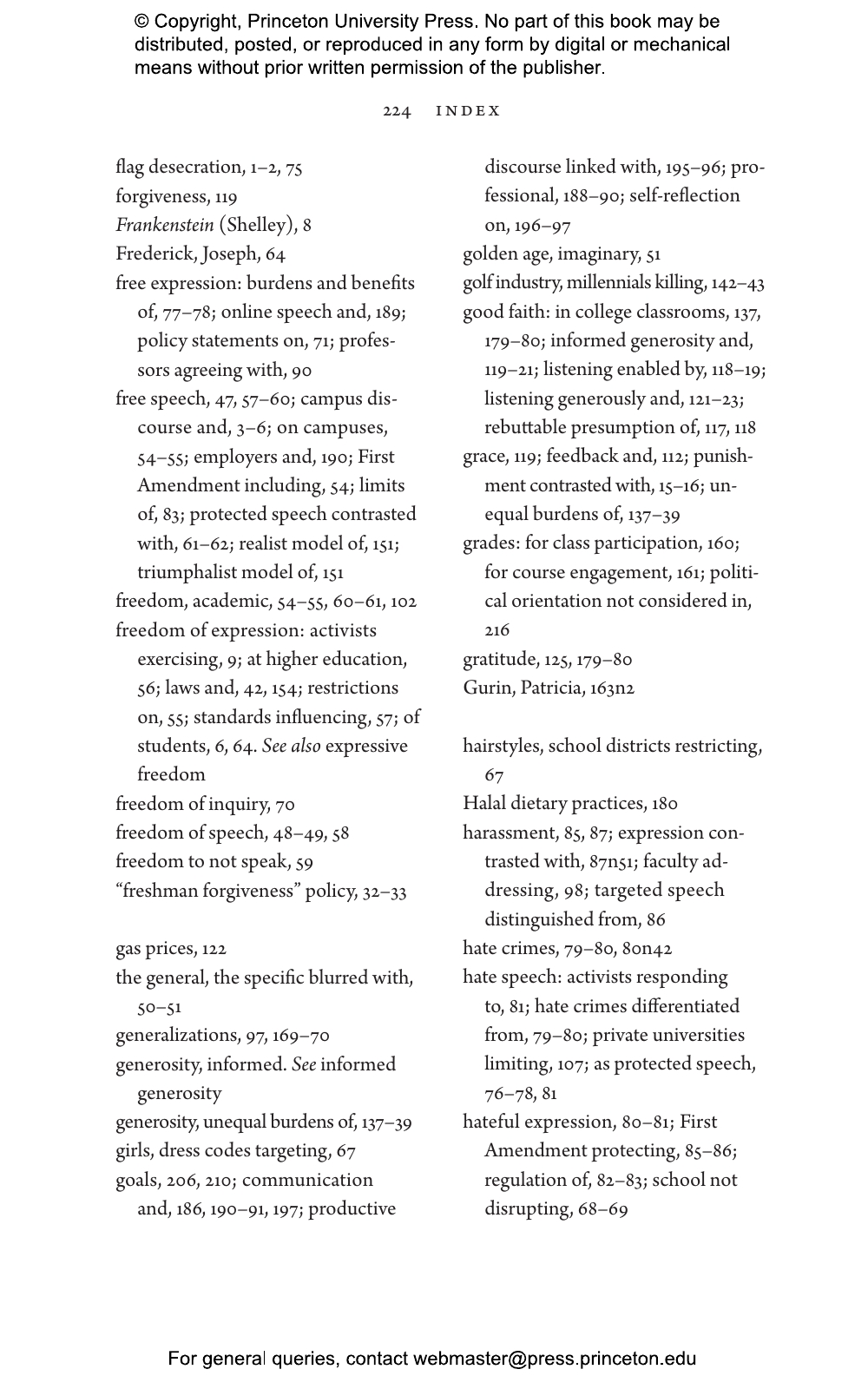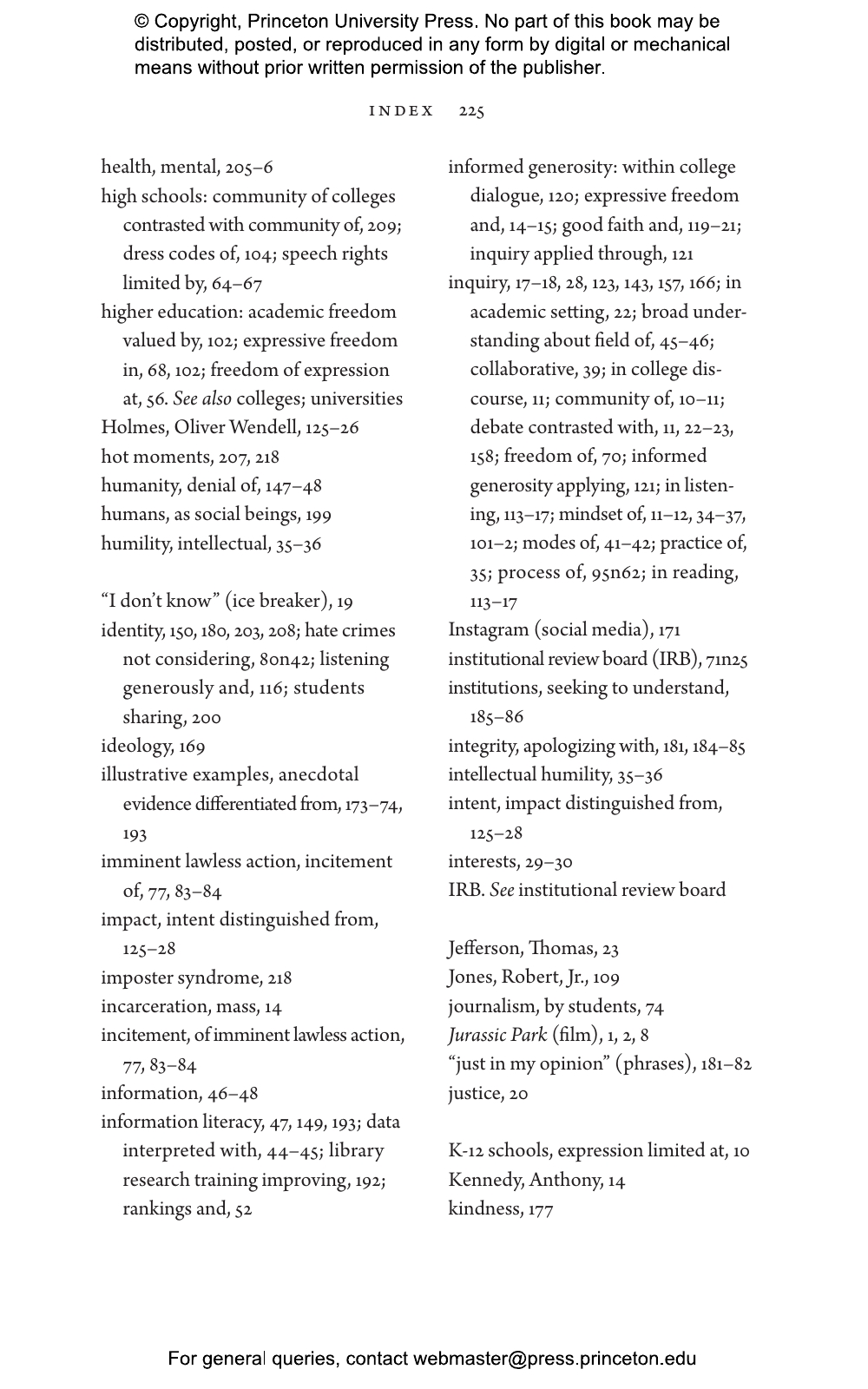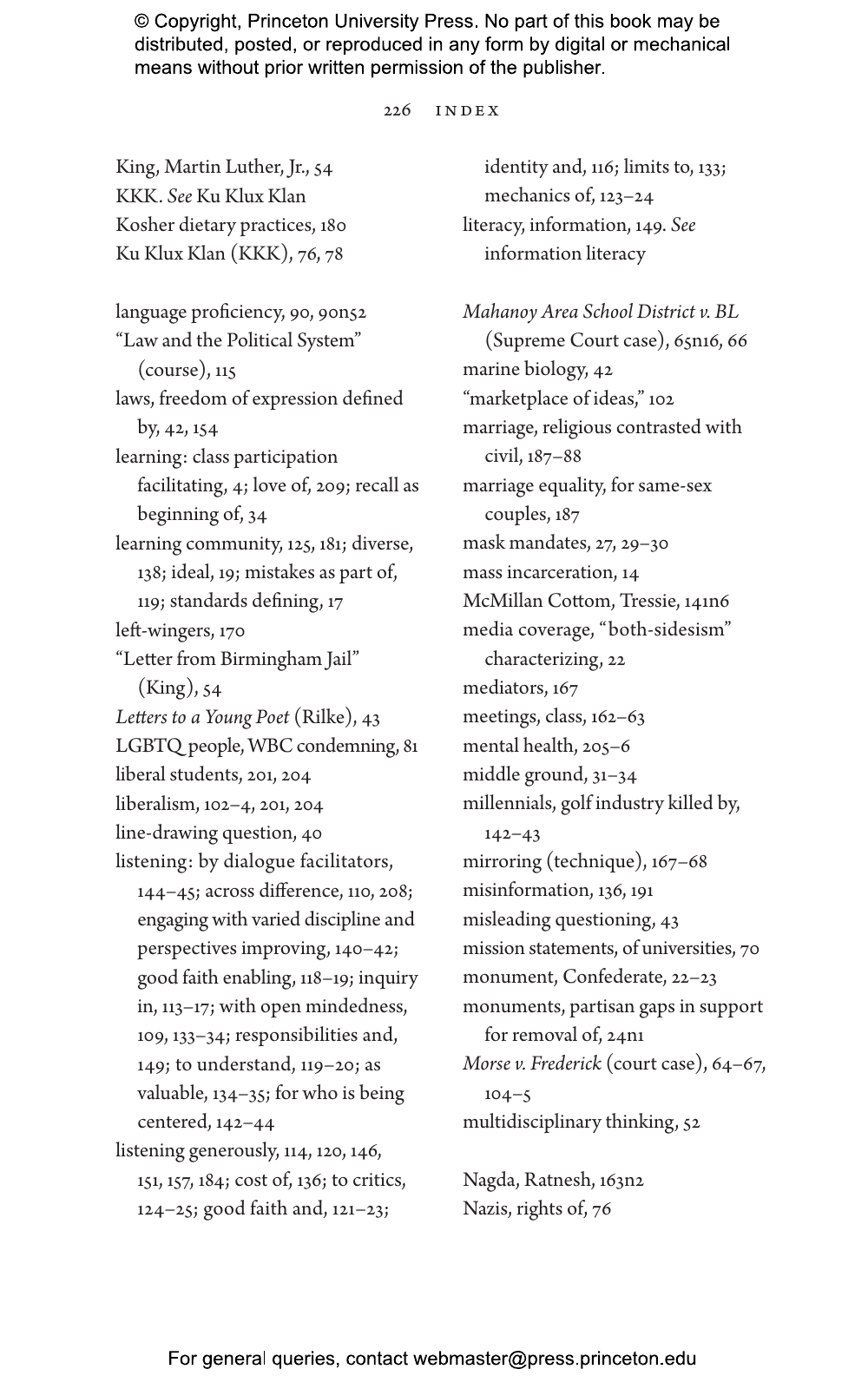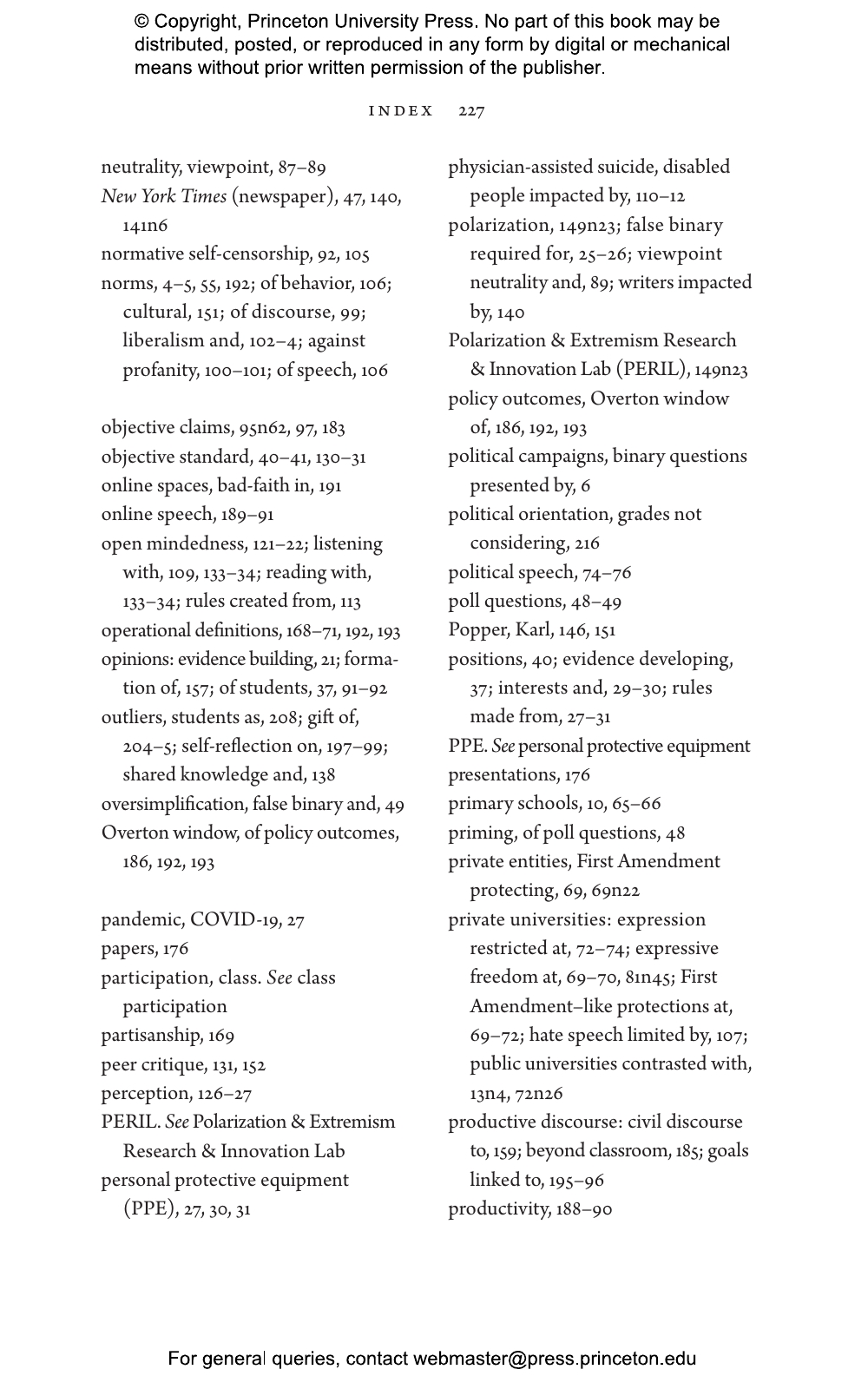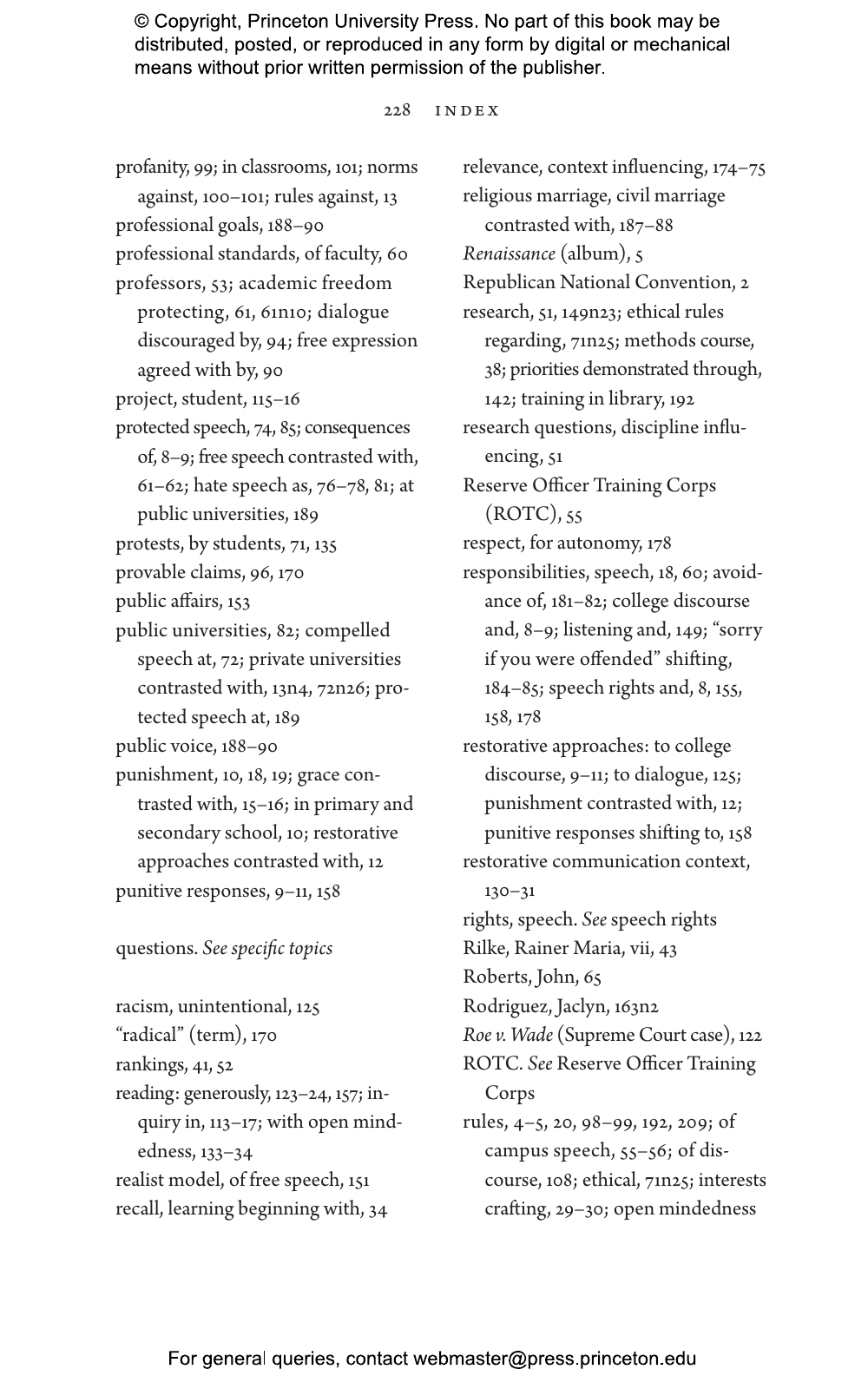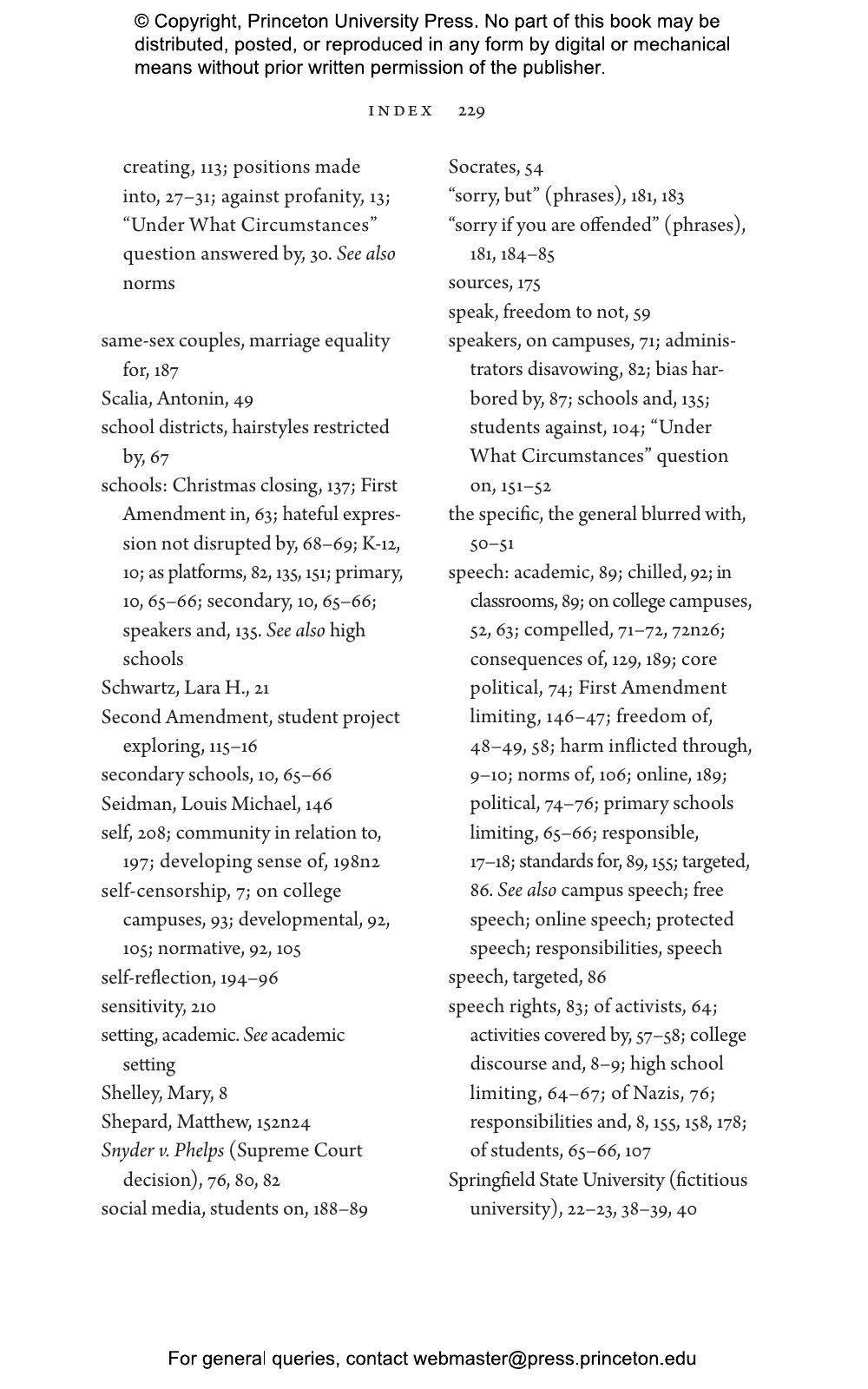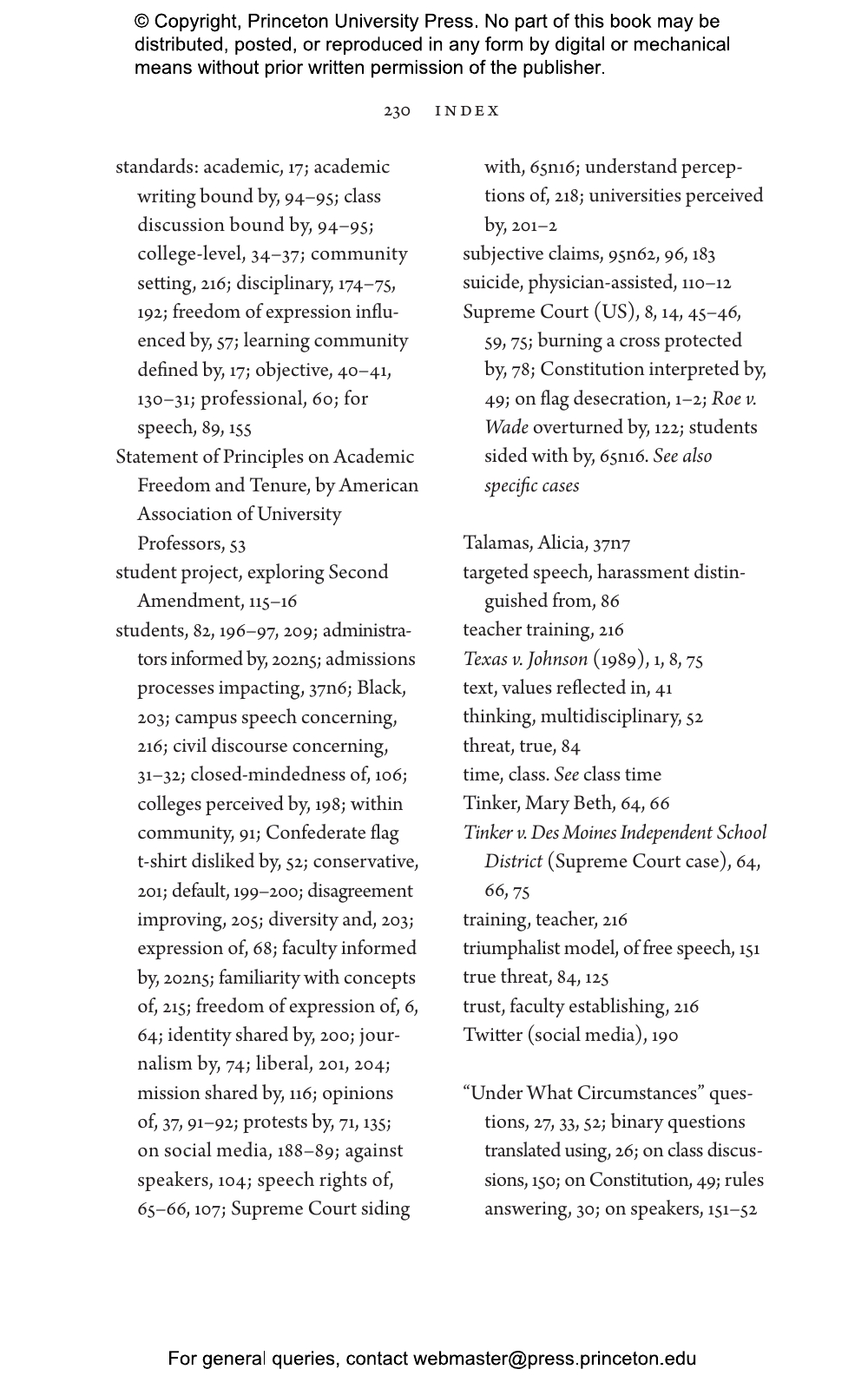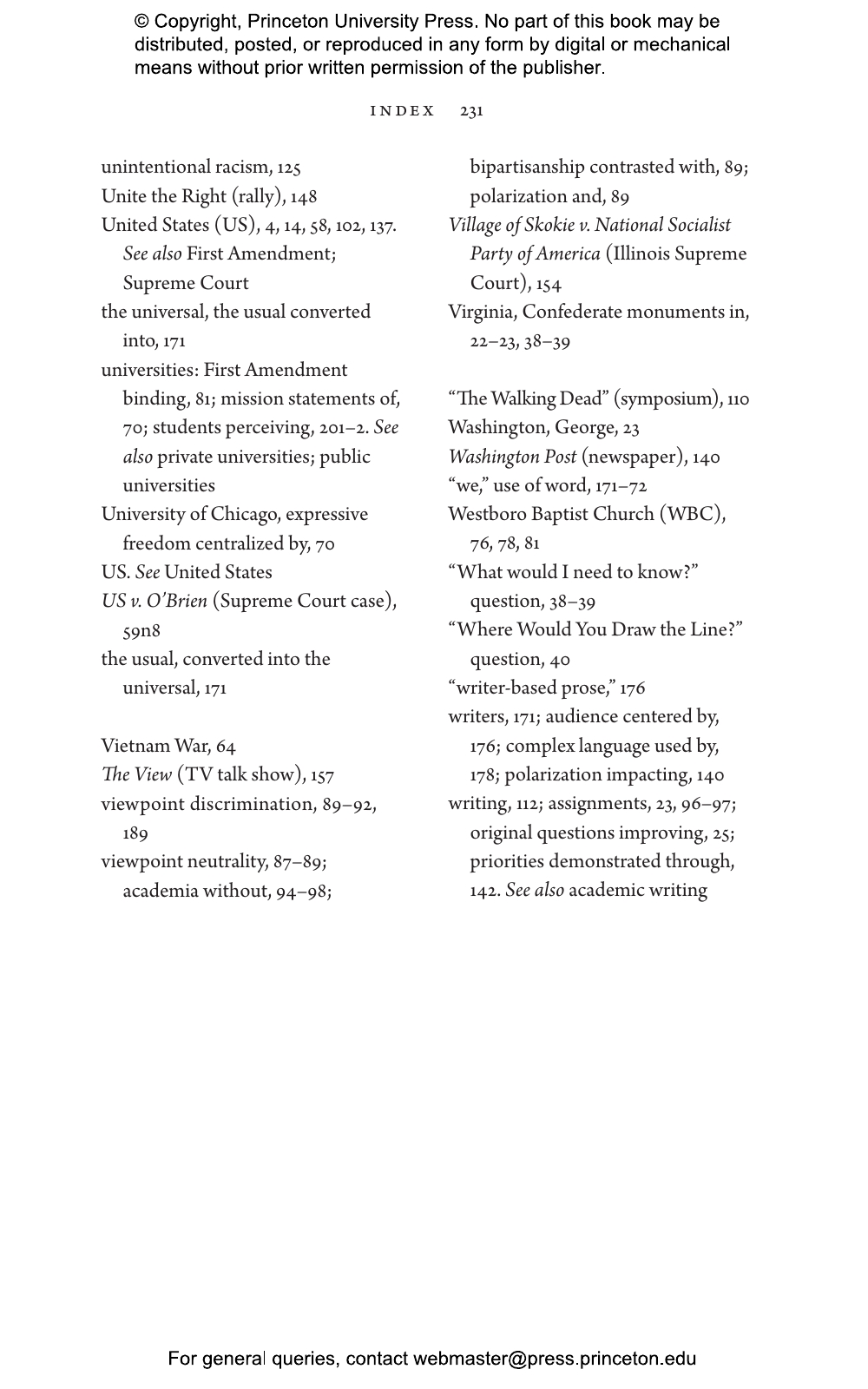Try to Love the Questions gives college students a framework for understanding and practicing dialogue across difference in and out of the classroom. This invaluable guide explores the challenges facing students as they prepare to listen, speak, and learn in a college community and encourages students and faculty alike to consider inclusive, respectful communication as a skill—not as a limitation on freedom.
Among the most common challenges on college campuses today is figuring out how to navigate our politically charged culture and engage productively with opposing viewpoints. Lara Schwartz introduces the fundamental principles of free expression, academic freedom, and academic dialogue, showing how open expression is the engine of social progress, scholarship, and inclusion. She sheds light on the rules and norms that govern campus discourse—such as the First Amendment, campus expression policies, and academic standards—and encourages students to adopt a mindset of inquiry that embraces uncertainty and a love of questions.
Empowering students, scholars, and instructors to listen generously, explore questions with integrity, and communicate to be understood, Try to Love the Questions includes writing exercises and discussion questions in every chapter, making it an indispensable resource for anyone interested in practicing good-faith dialogue.
Lara Hope Schwartz teaches in the School of Public Affairs at American University, where she is founding director of the Project on Civic Dialogue (formerly the Project on Civil Discourse). A lawyer and former civil rights strategist, she is the author (with Andrea Malkin Brenner) of How to College: What to Know before You Go (and When You’re There).
“Lara Hope Schwartz provides us with an accessible, smart, and good-humored resource that we’ve long needed in college classrooms. She connects the skills of listening, critiquing, and generous thinking with the ways in which we learn and flourish in college and helps students to navigate the complex social and intellectual landscape of higher education. Try to Love the Questions is a guide to rich thinking, meaningful engagement, and deeper, more intentional learning.”—Kevin M. Gannon, author of Radical Hope: A Teaching Manifesto
“Try to Love the Questions offers a practical assessment of the challenges to open dialogue on college campuses today and suggests a clear and pragmatic approach to overcoming them. Contrary to common analyses that depict students as whiny, brittle, or self-indulgent, Schwartz correctly portrays them as capable, active, and needing and deserving of opportunities to learn how to use their voices.”—Sigal R. Ben-Porath, author of Cancel Wars: How Universities Can Foster Free Speech, Promote Inclusion, and Renew Democracy
“Try to Love the Questions boldly and cogently addresses an issue of urgent concern today: how to have productive and civil discussions in the college classroom at a time of polarization, direct attacks on people for their views, and outright fear of expressing one’s opinions. I hope this book is widely read and discussed.”—Gary Saul Morson, coauthor of Minds Wide Shut: How the New Fundamentalisms Divide Us
“Schwartz offers astute observations about what college discourse is and lays out the skills and strategies—for speaking, listening, and reading—that improve participation. Try to Love the Questions is an excellent introduction to college discourse for people who wonder how or even why to participate in it.”—Jonathan Marks, author of Let’s Be Reasonable: A Conservative Case for Liberal Education


